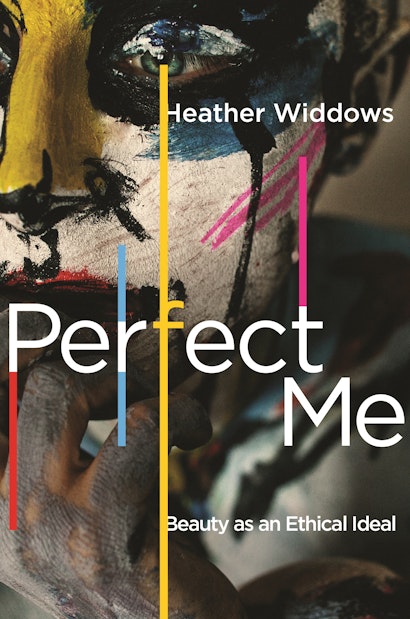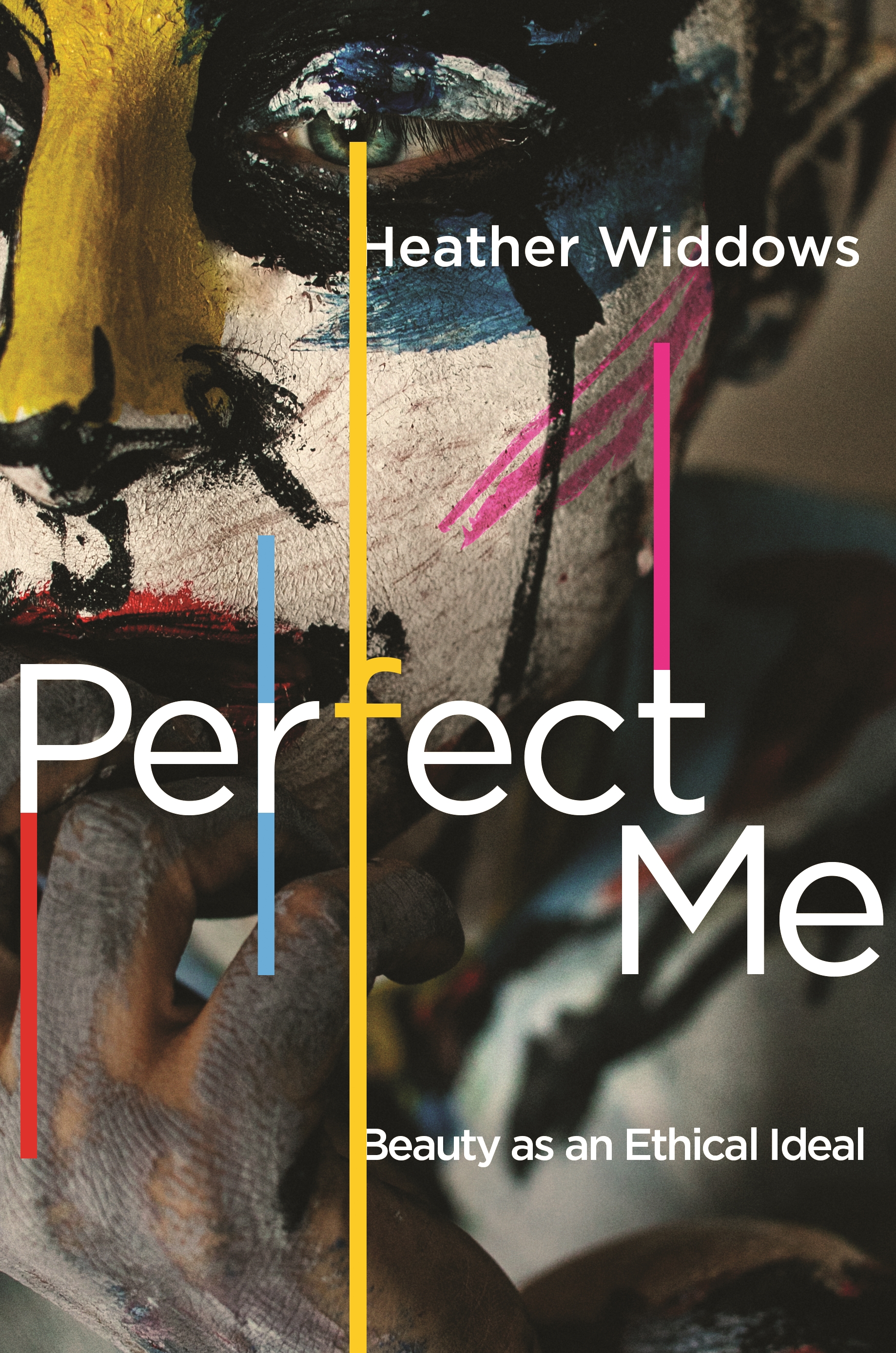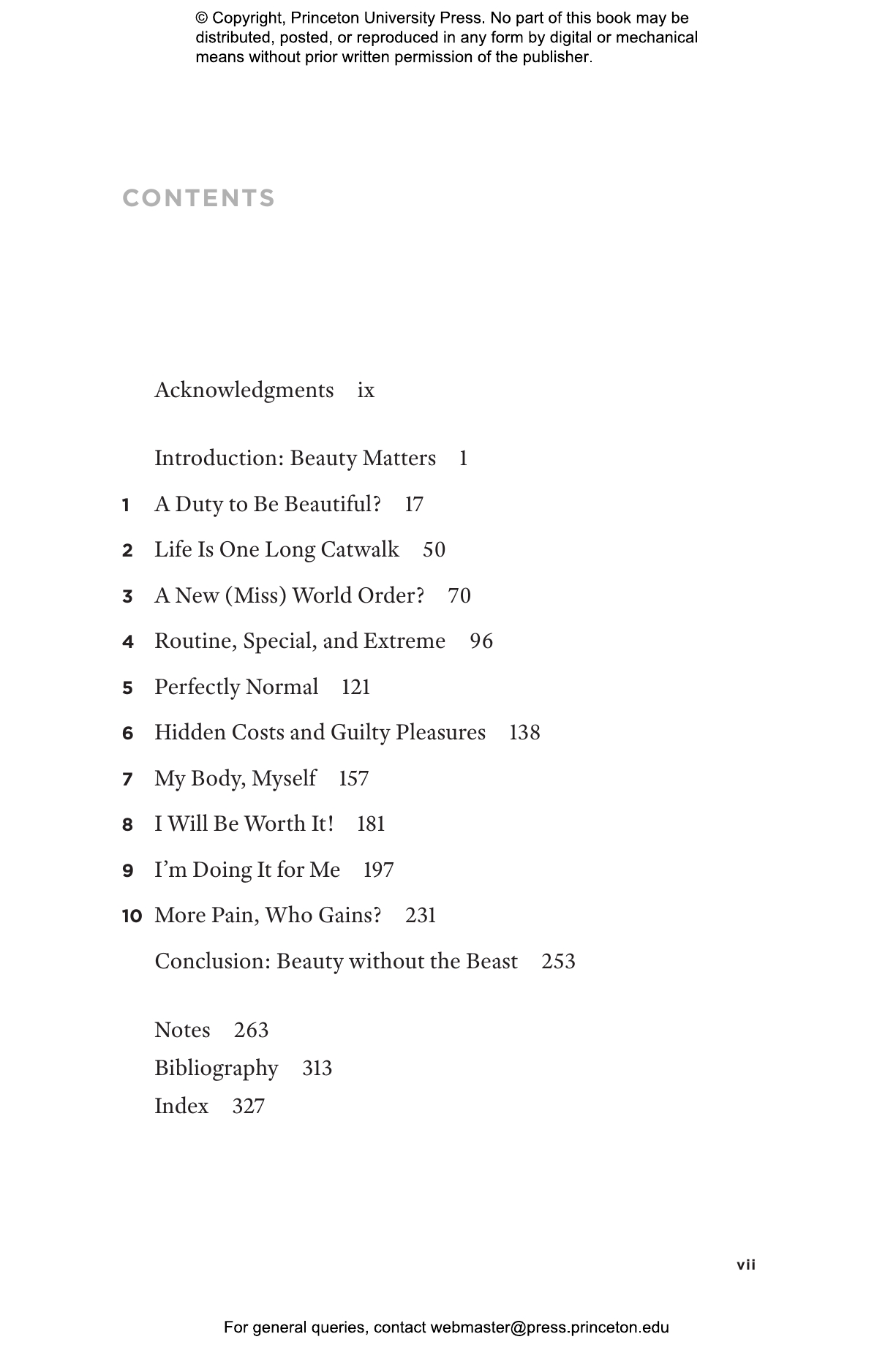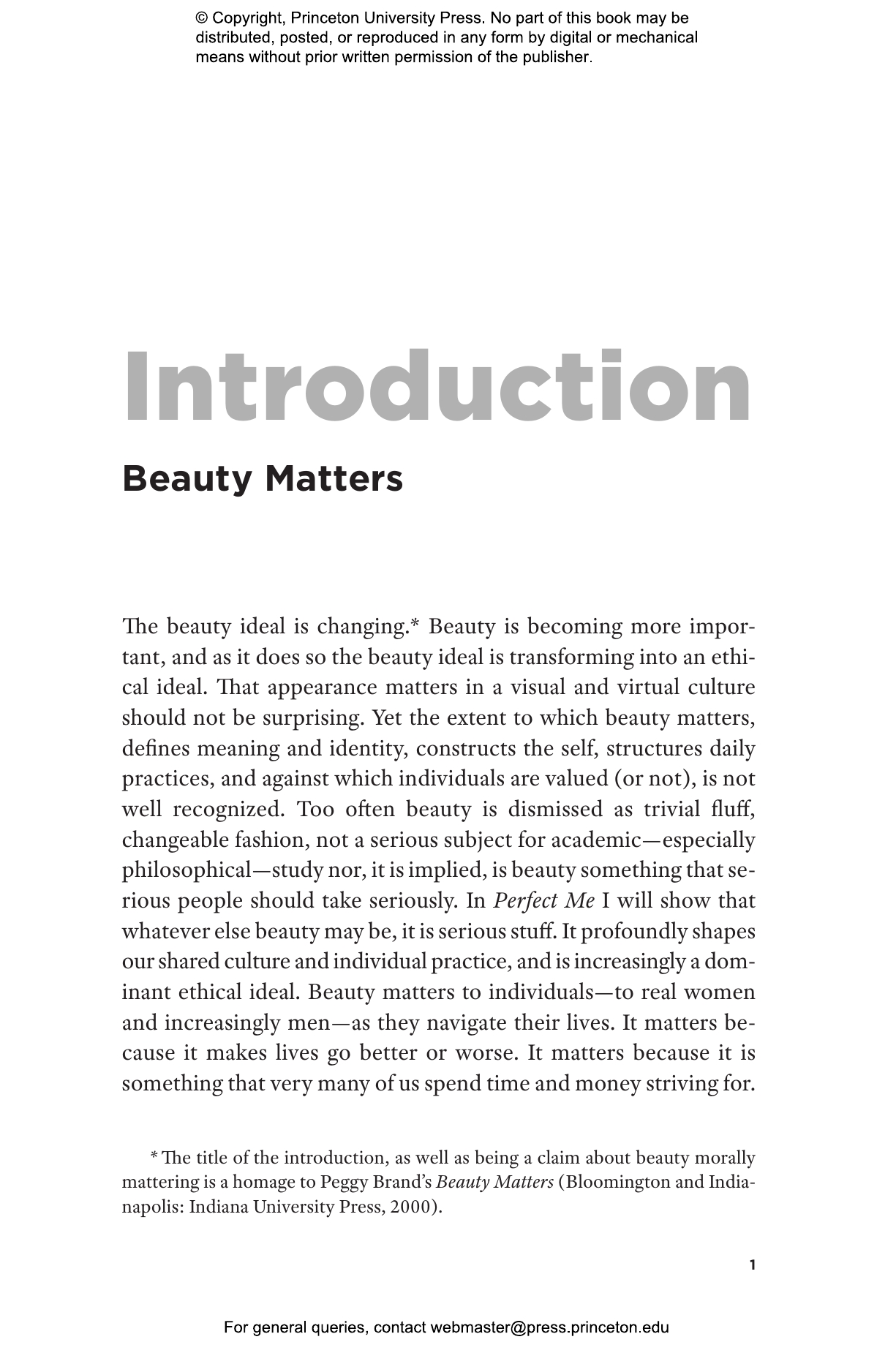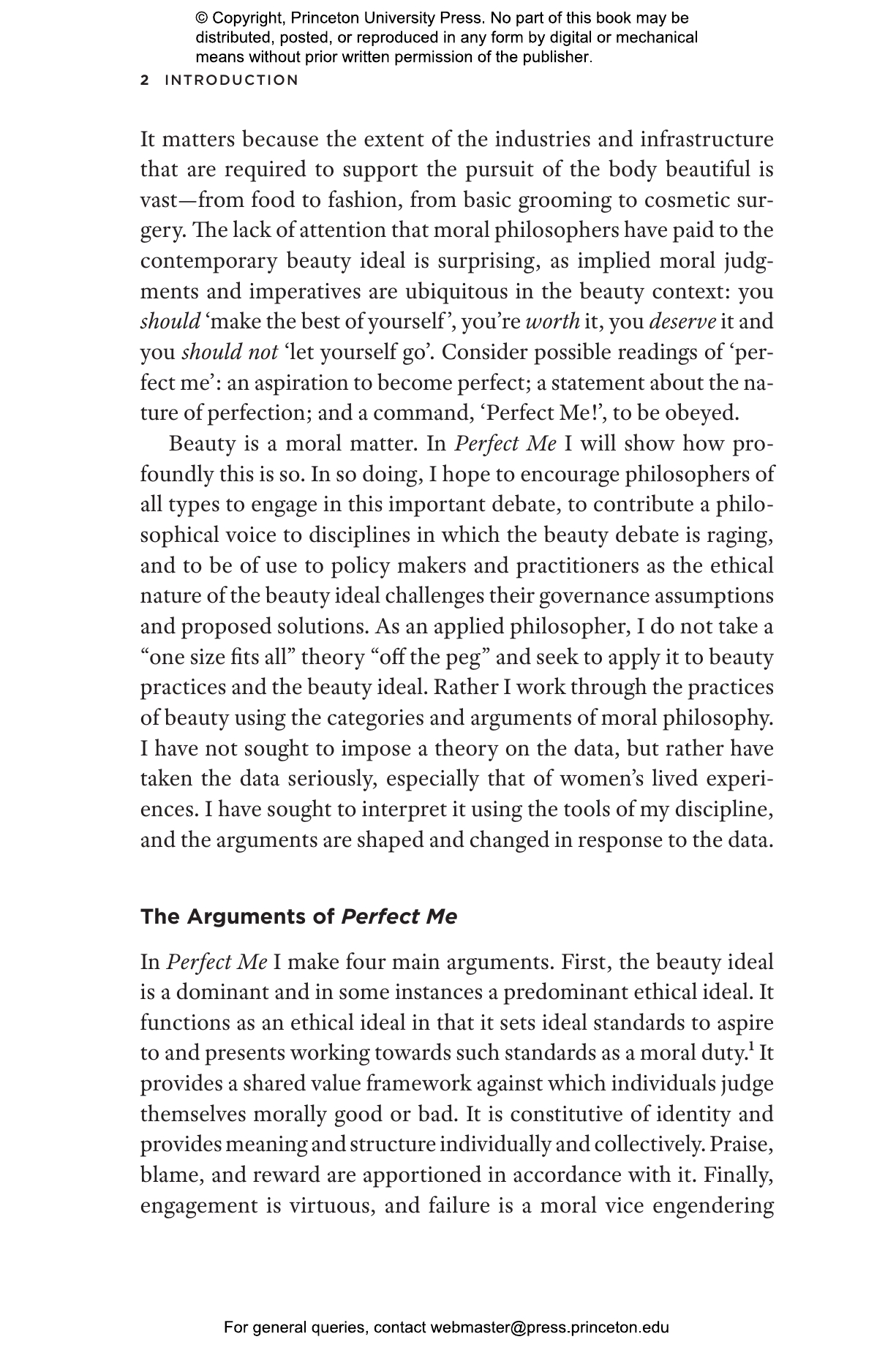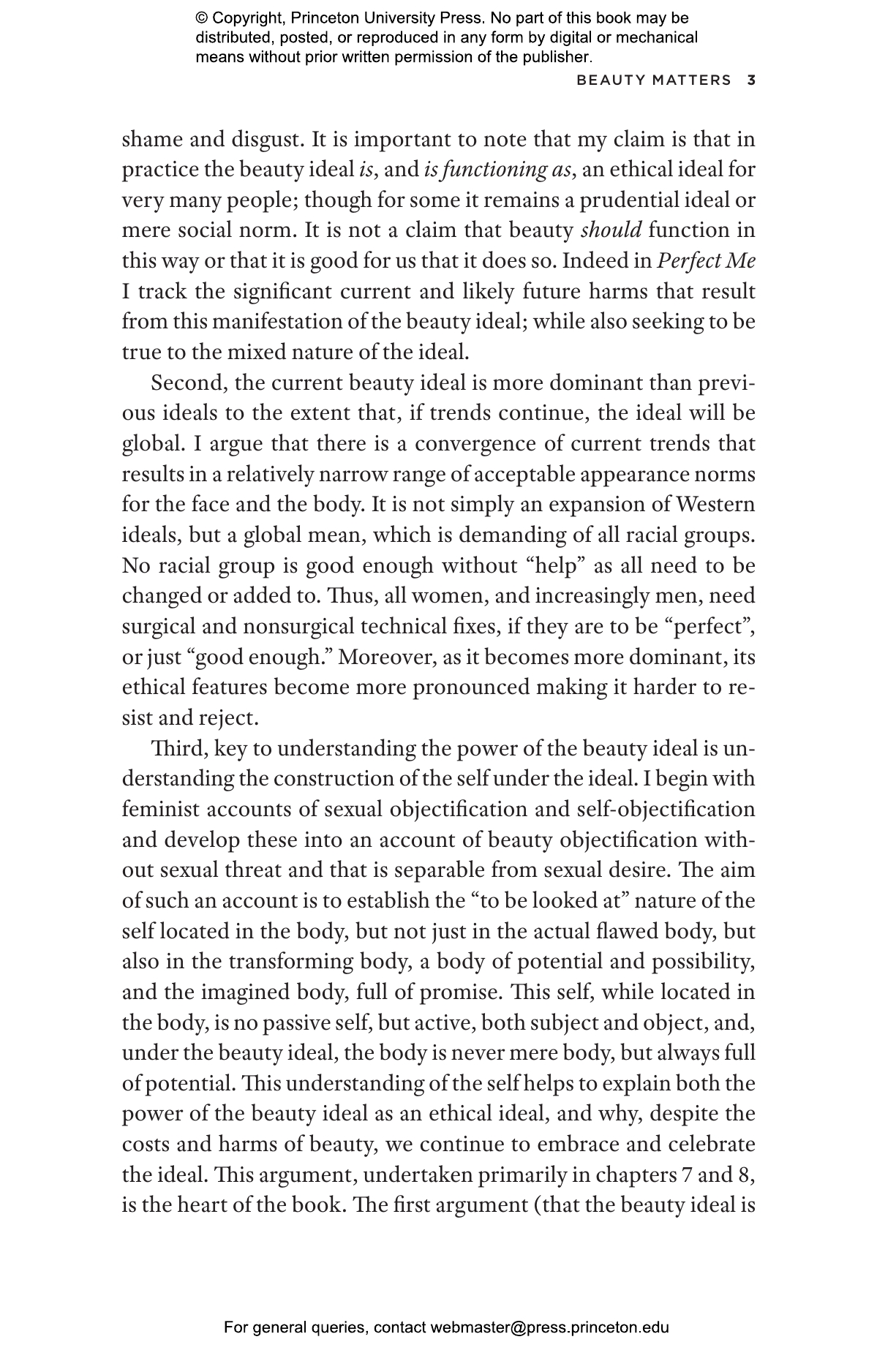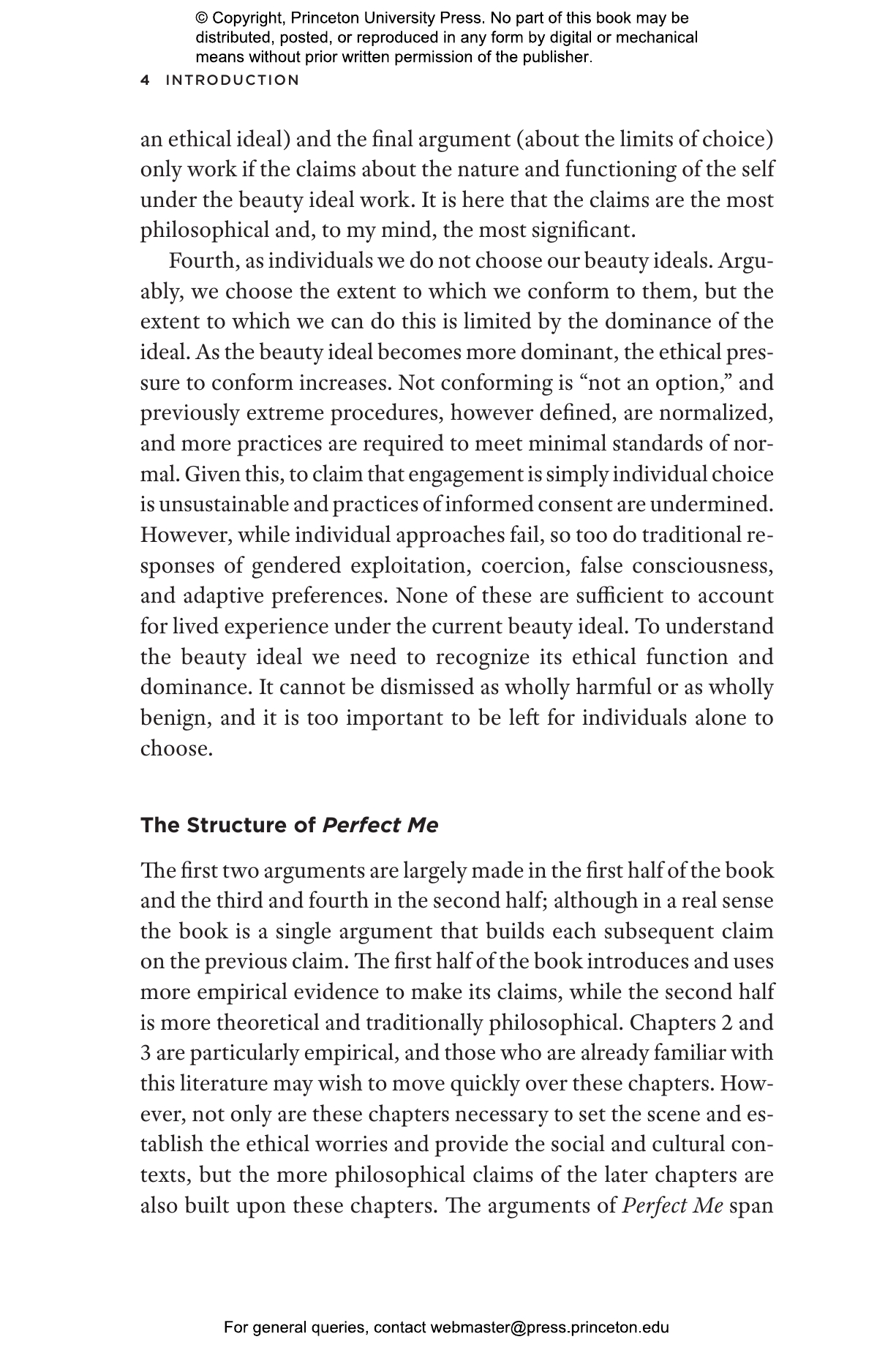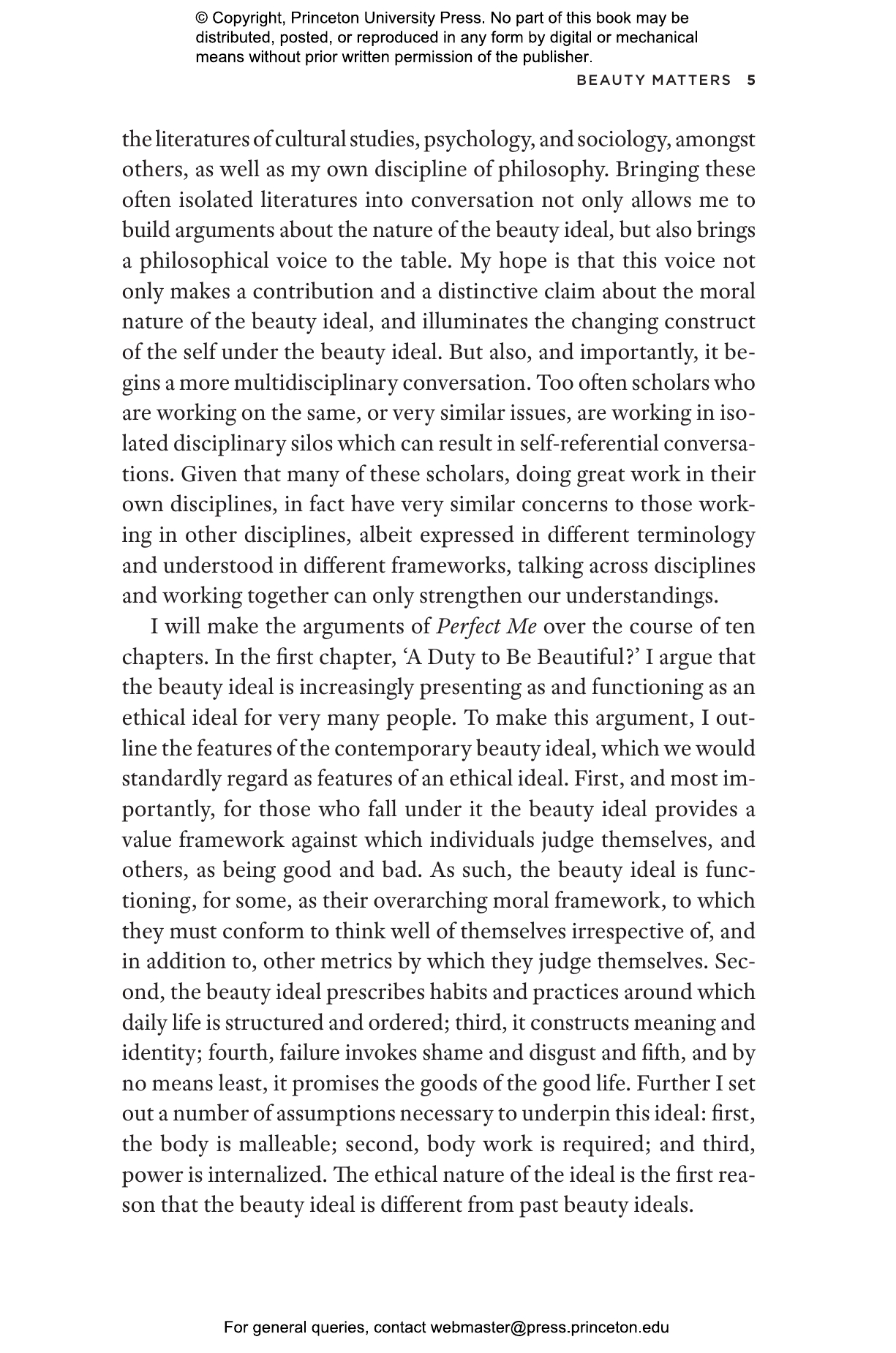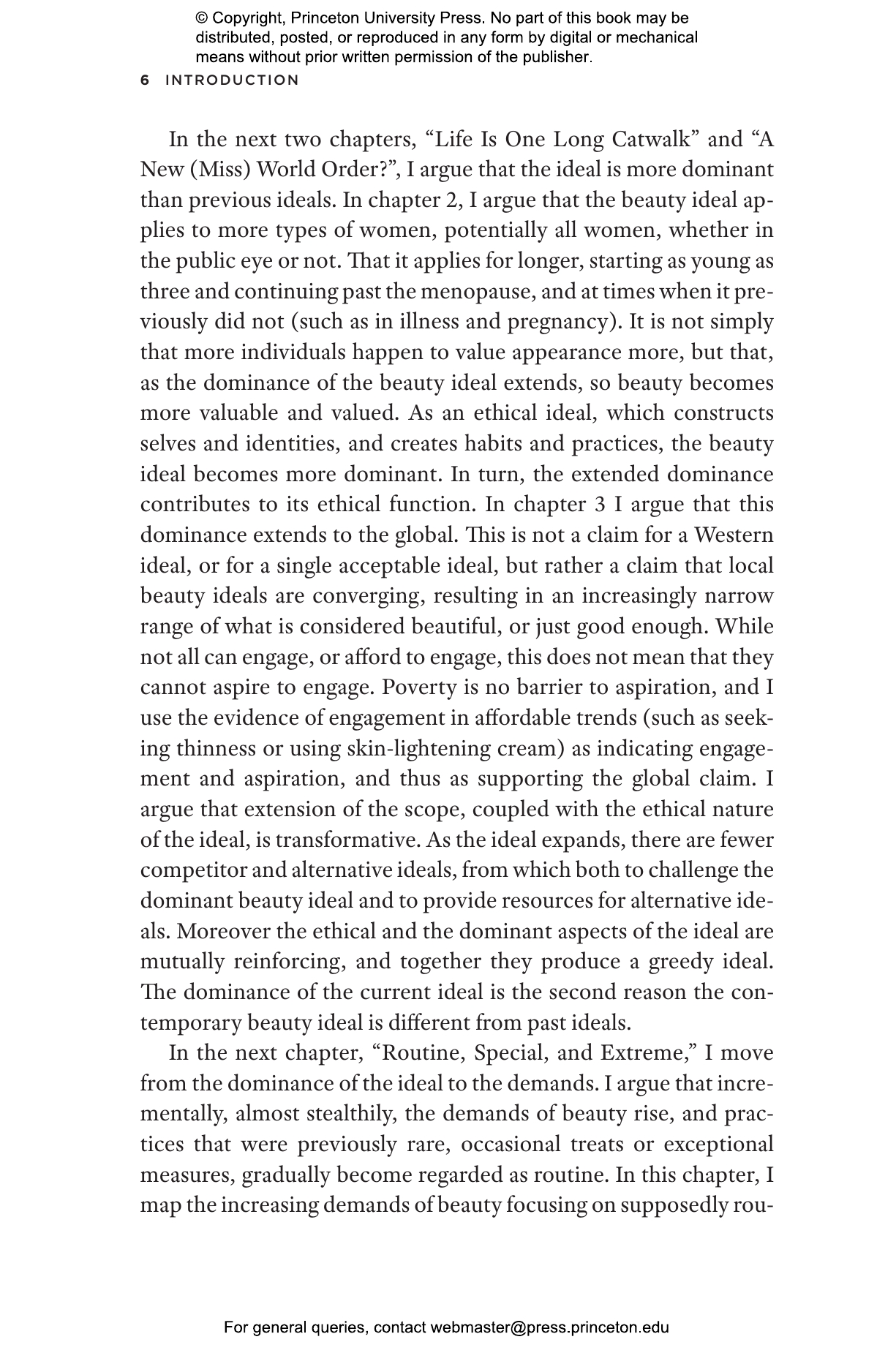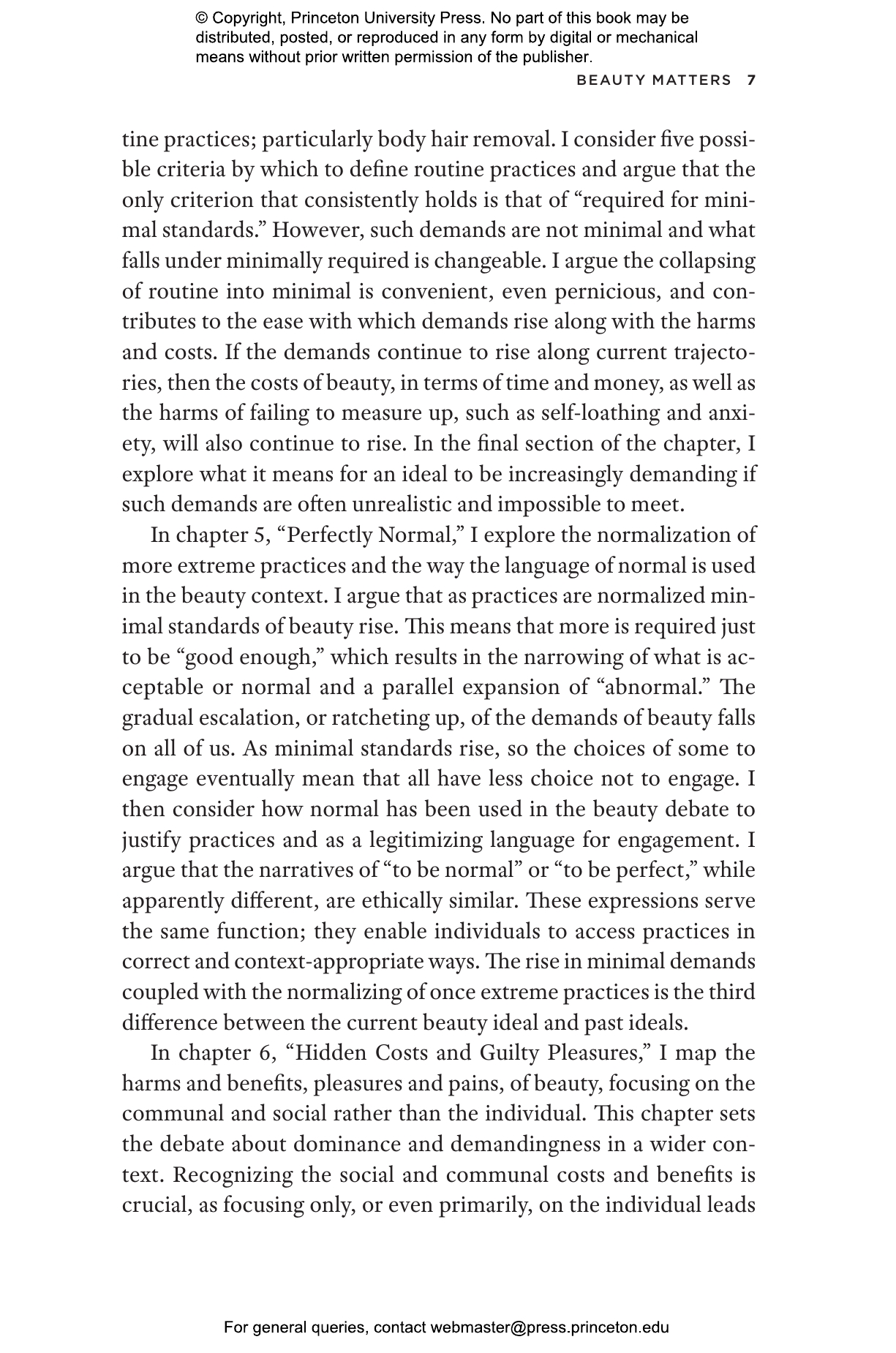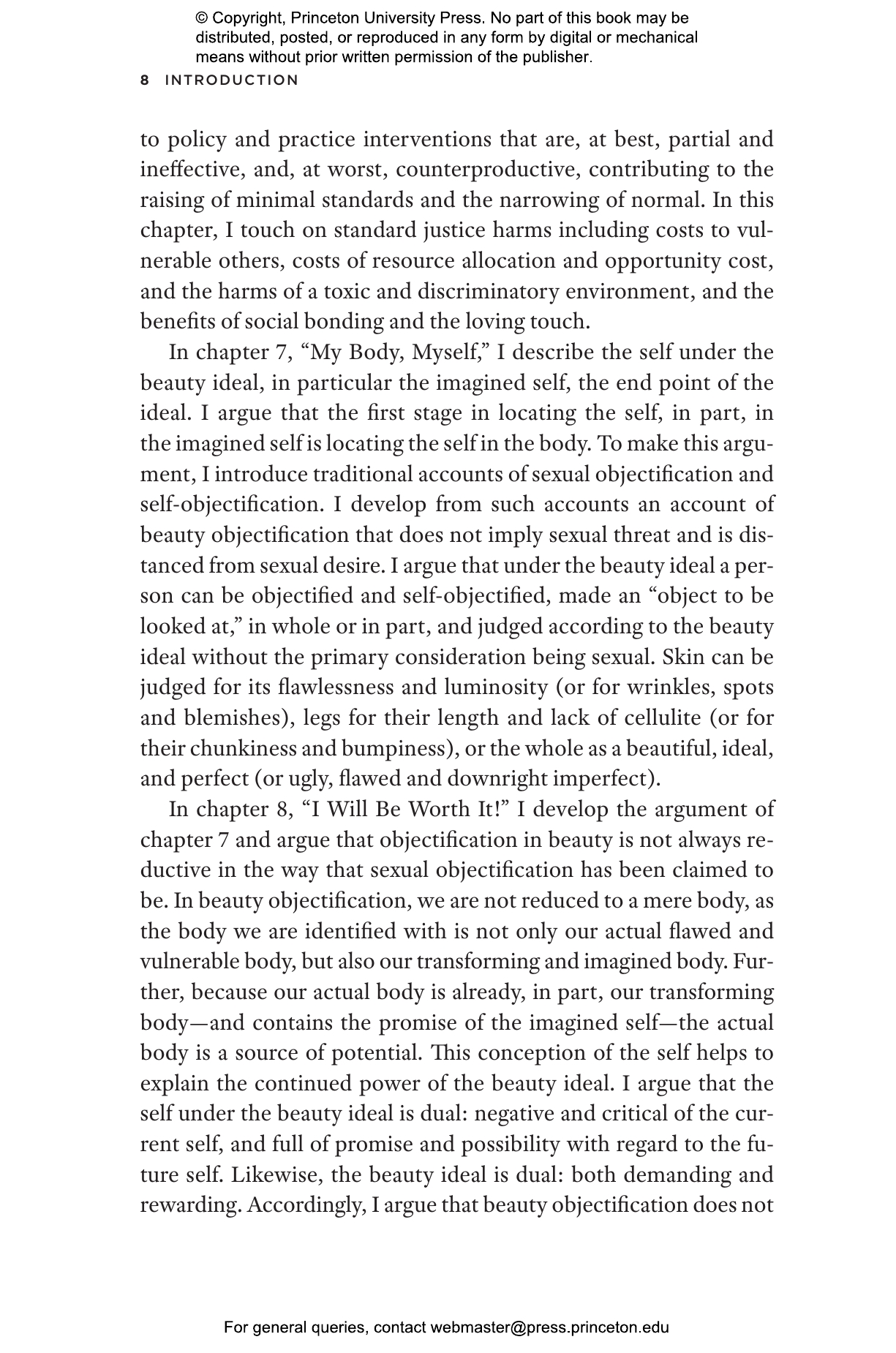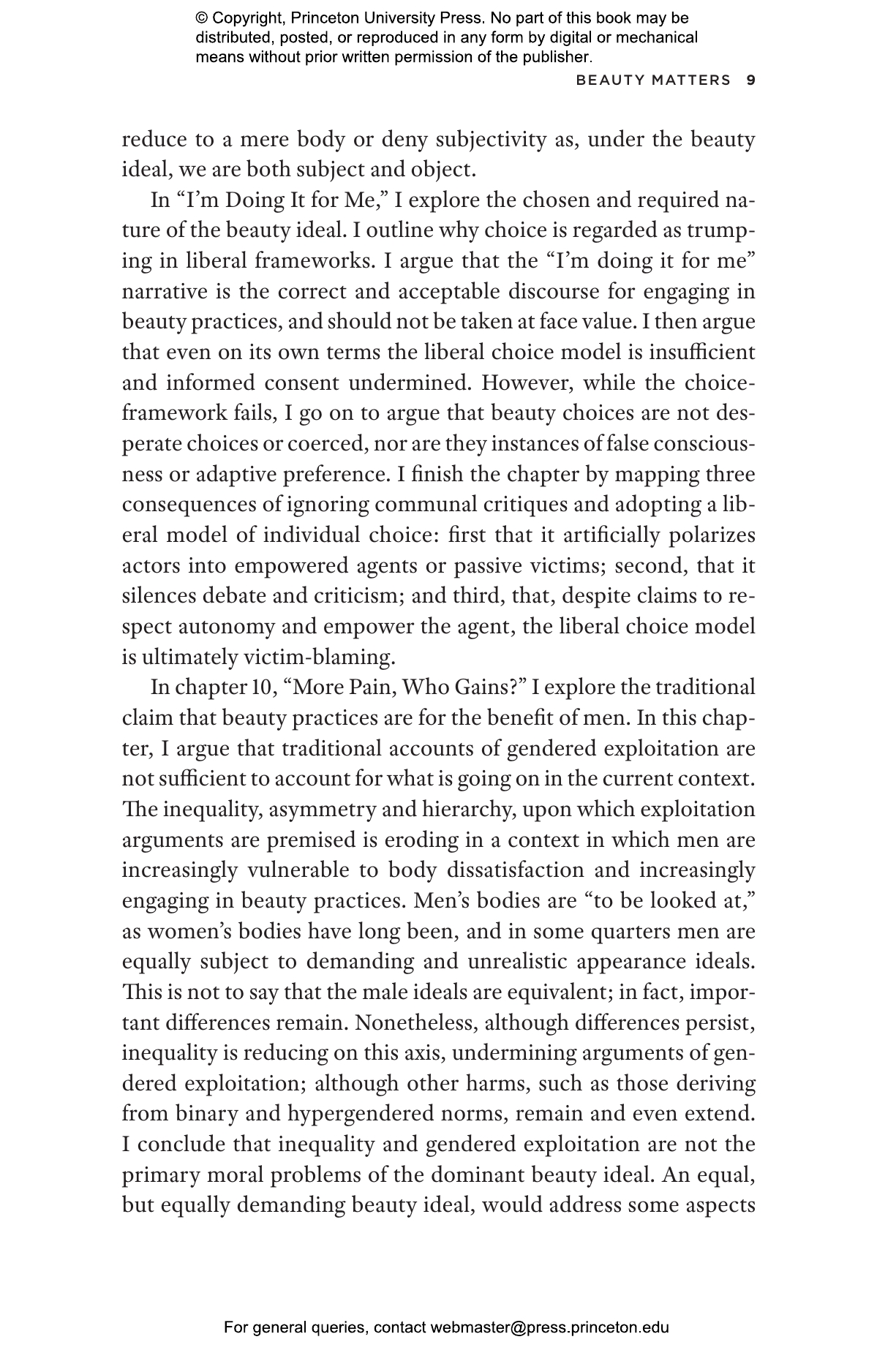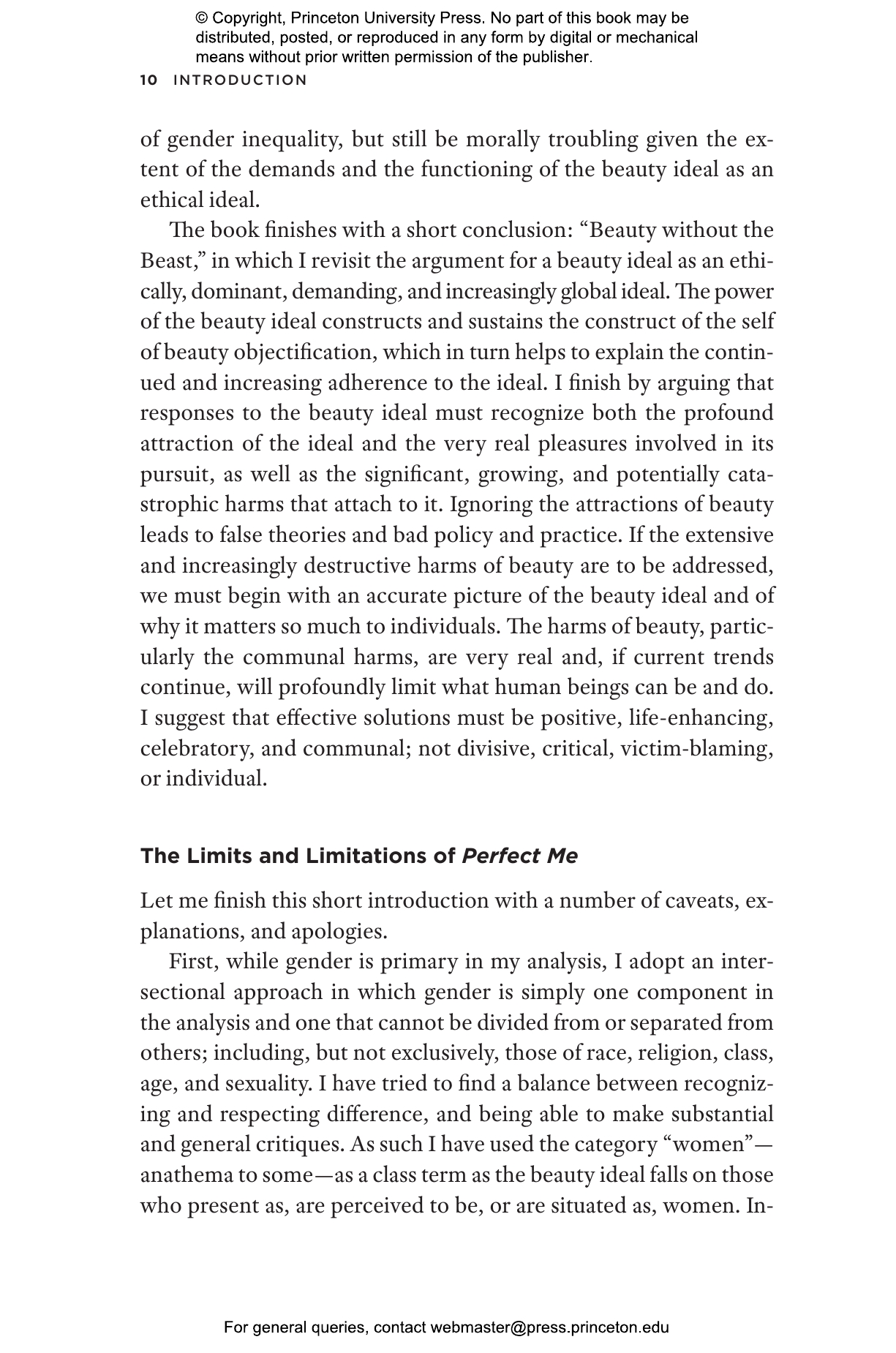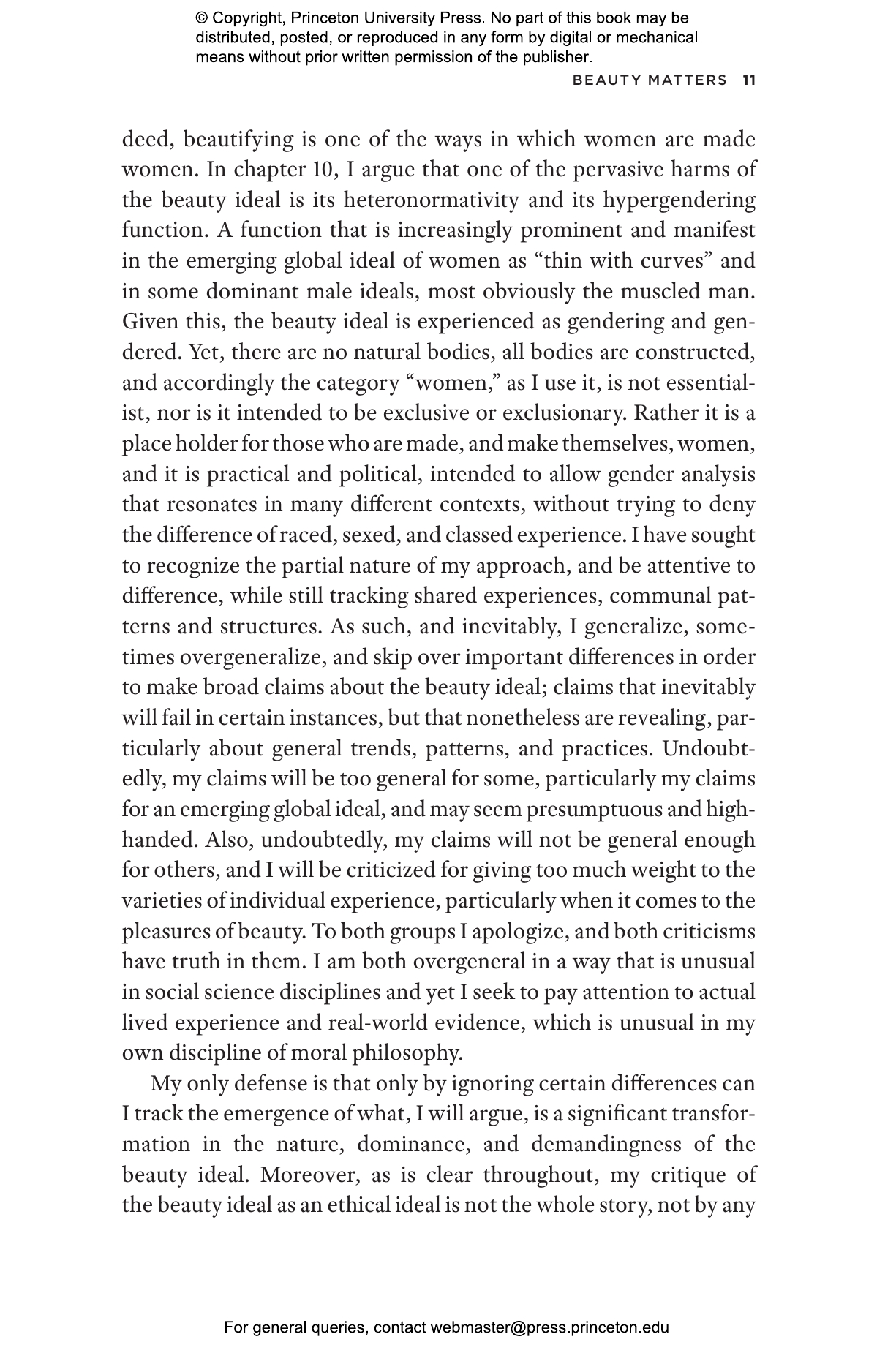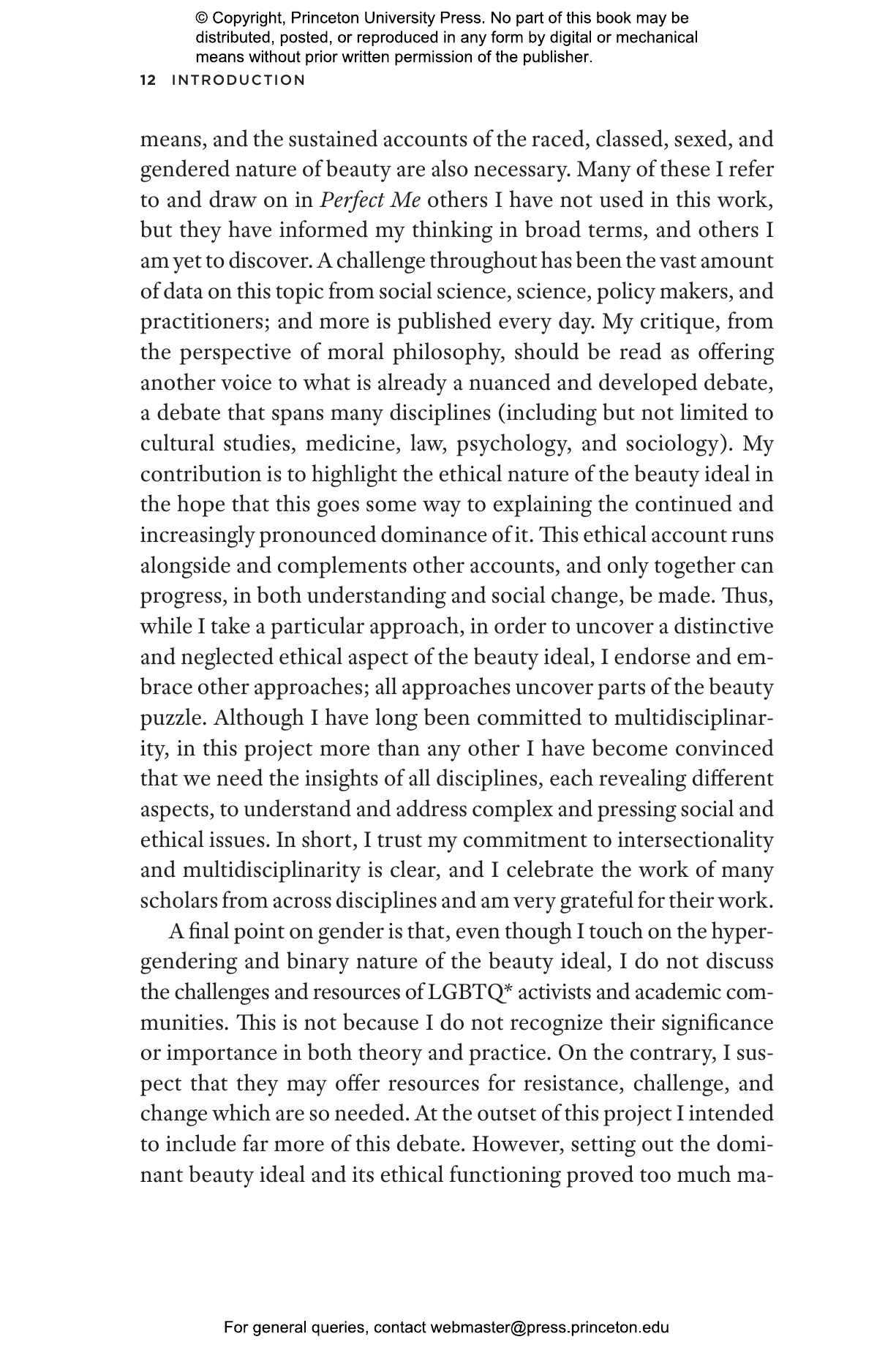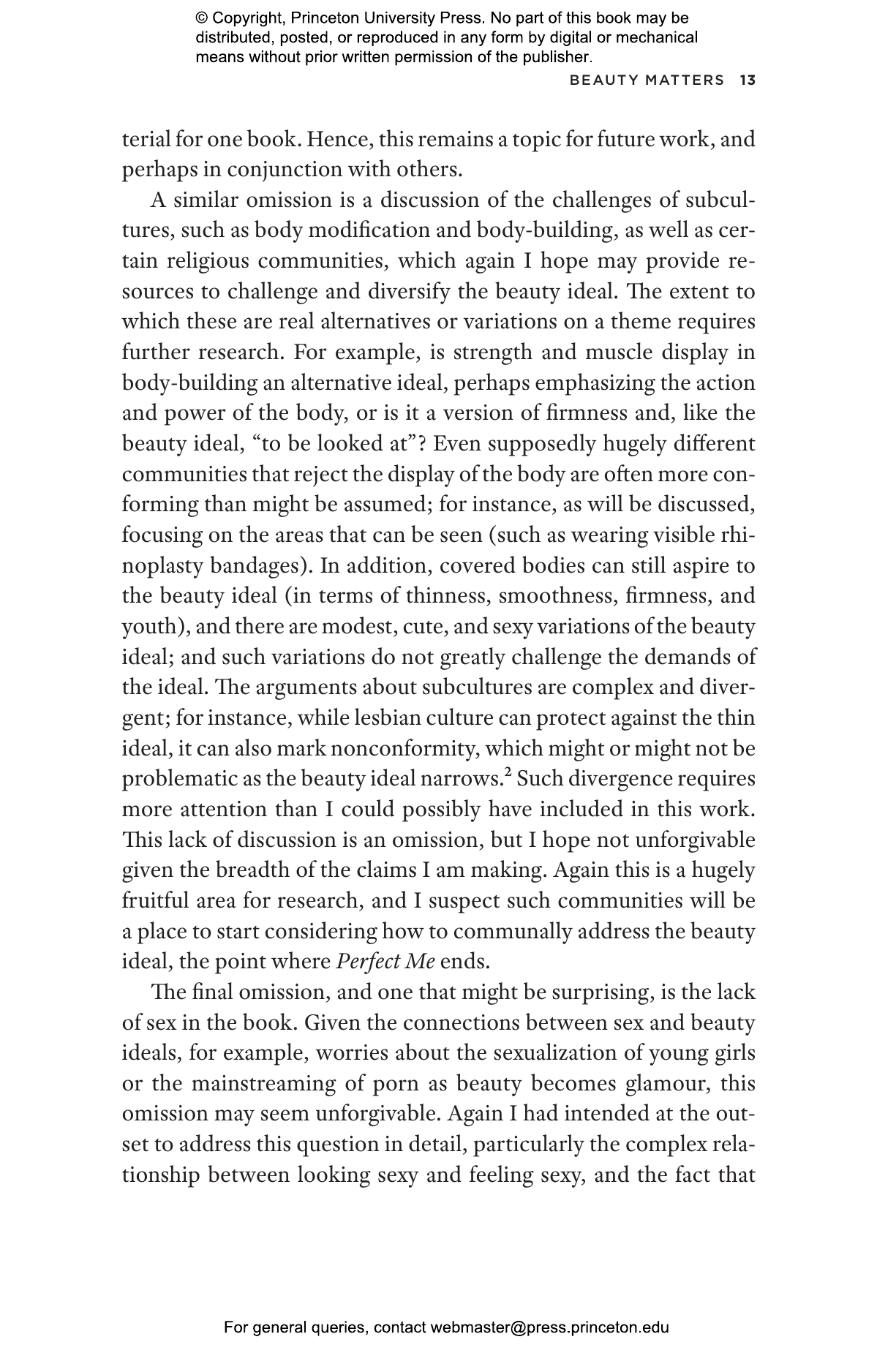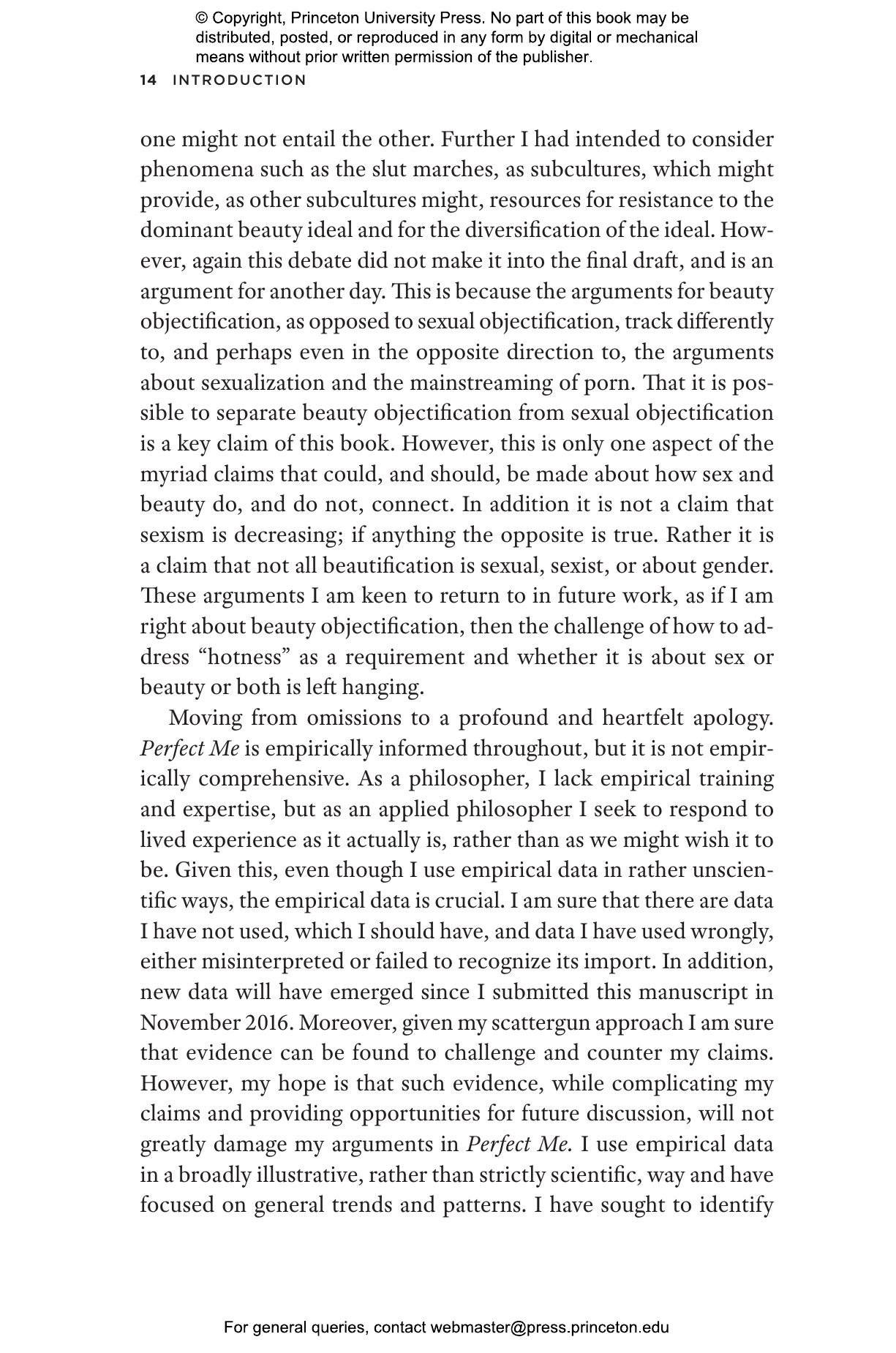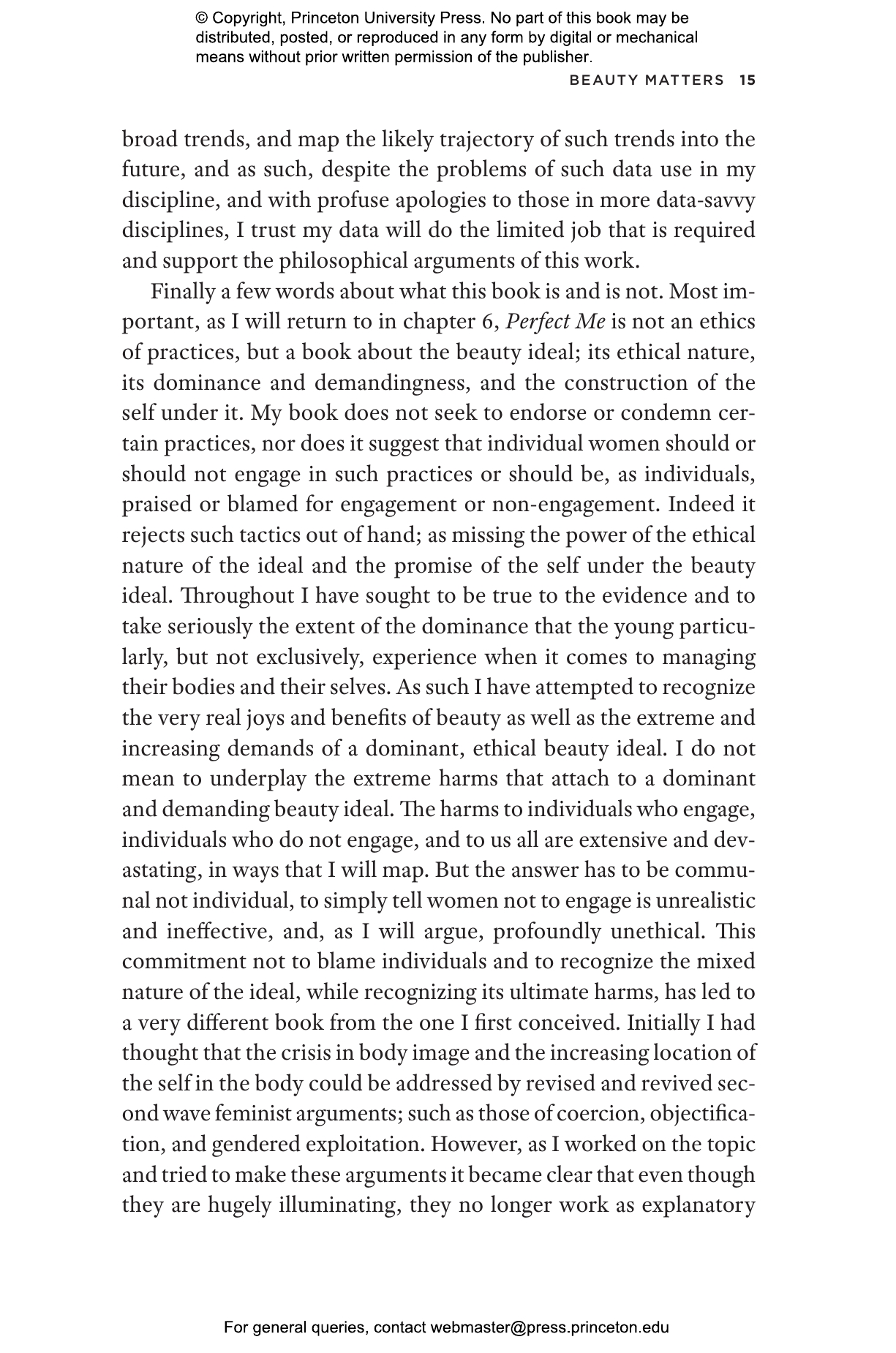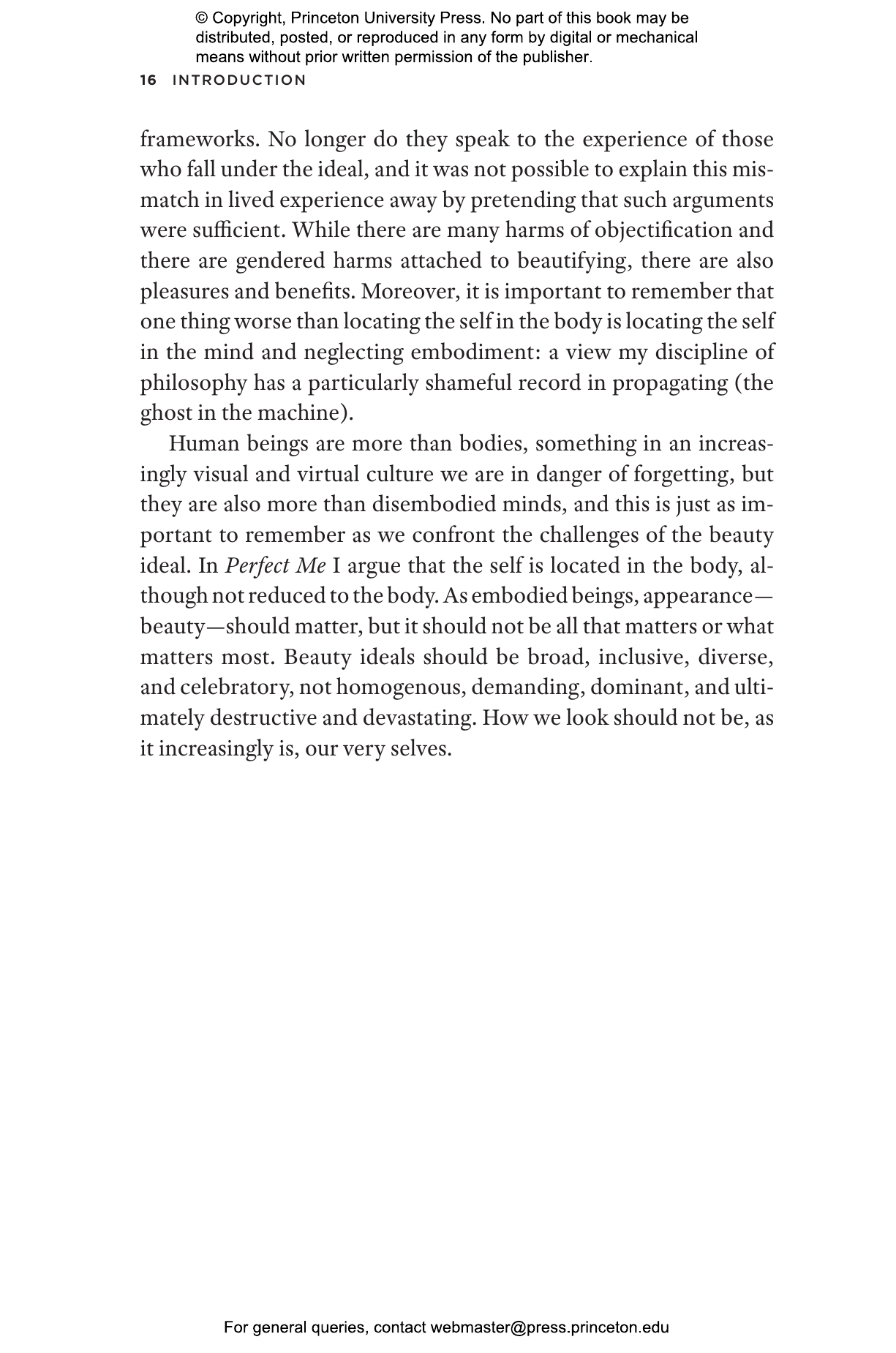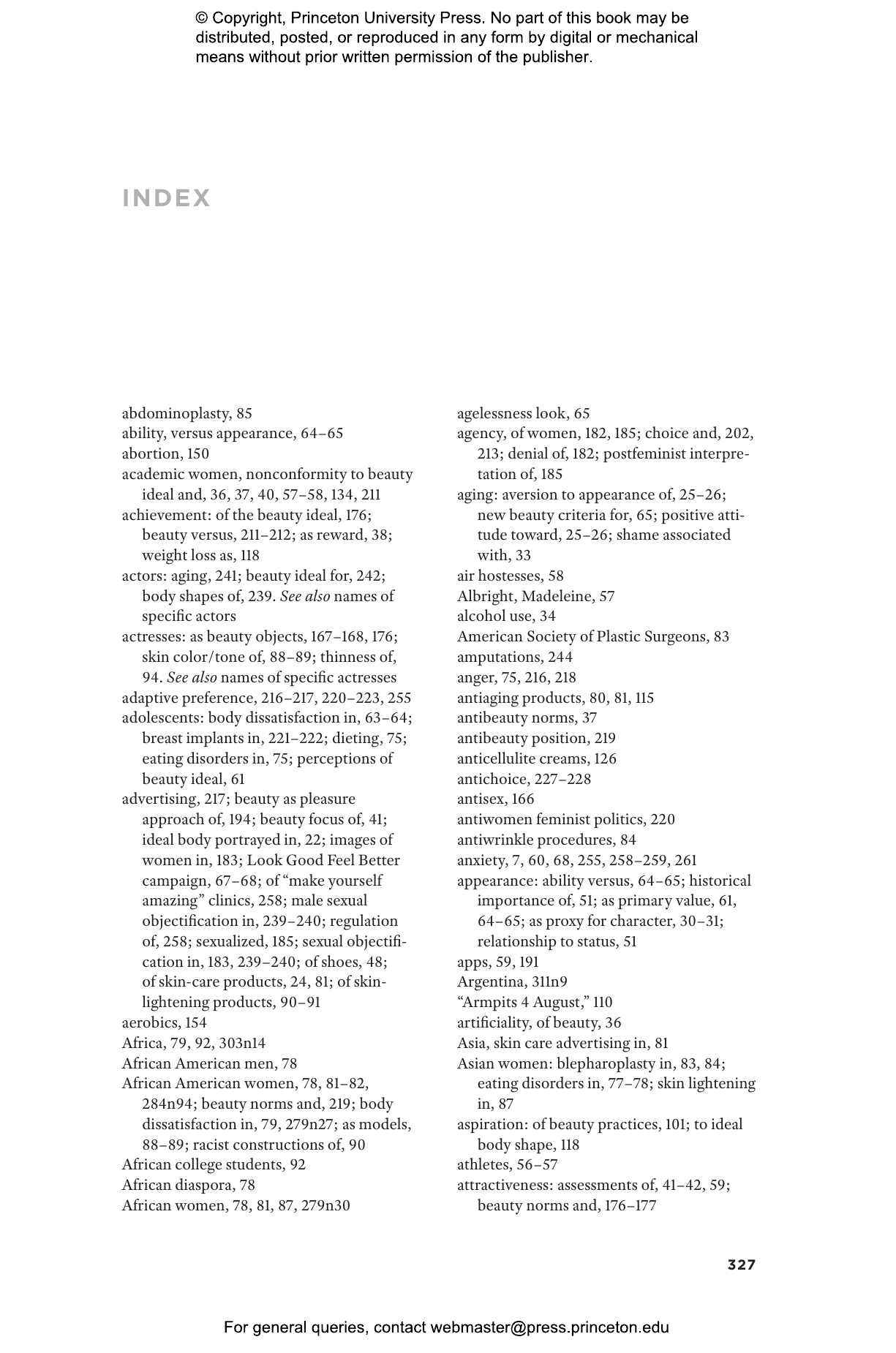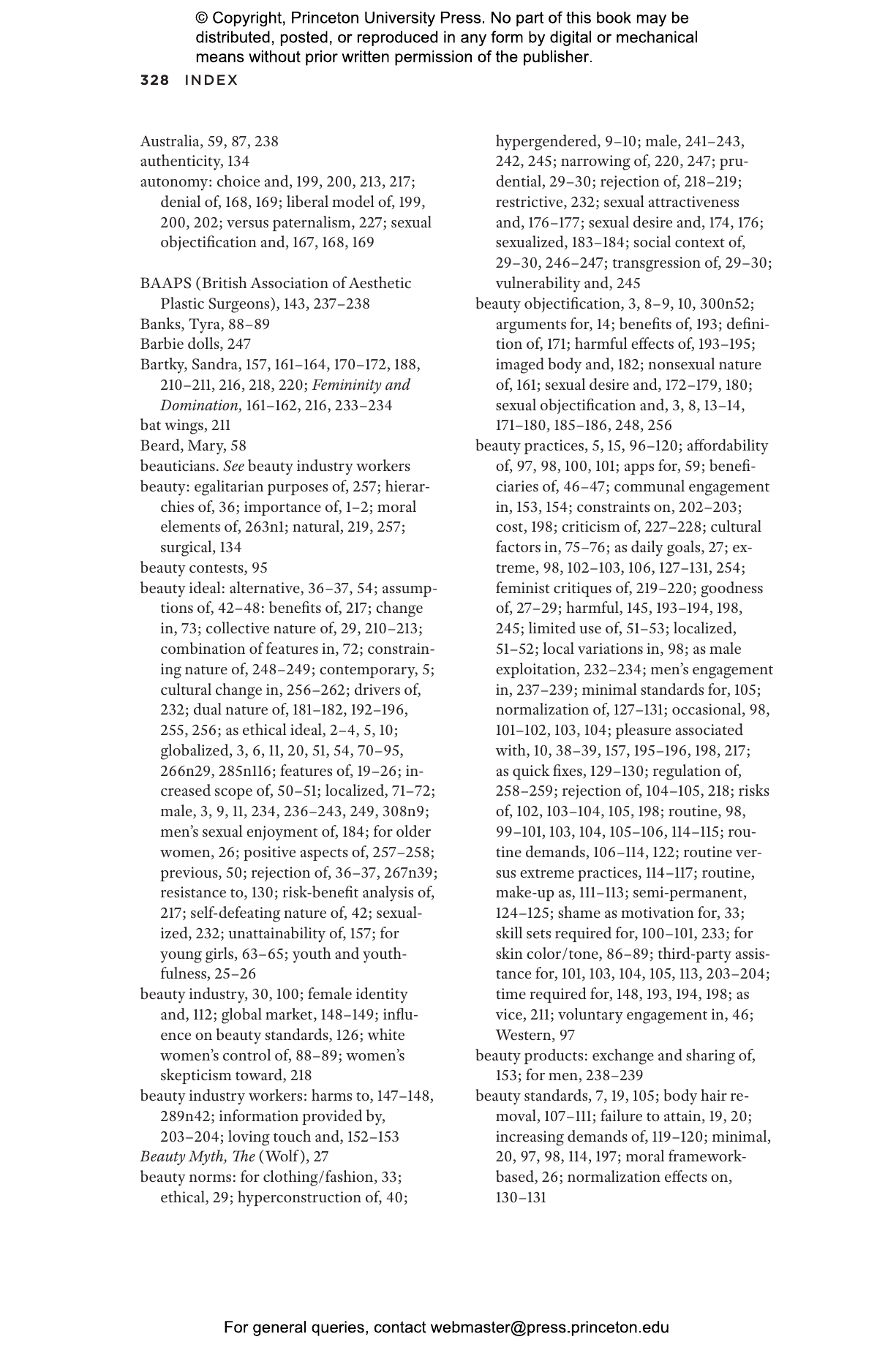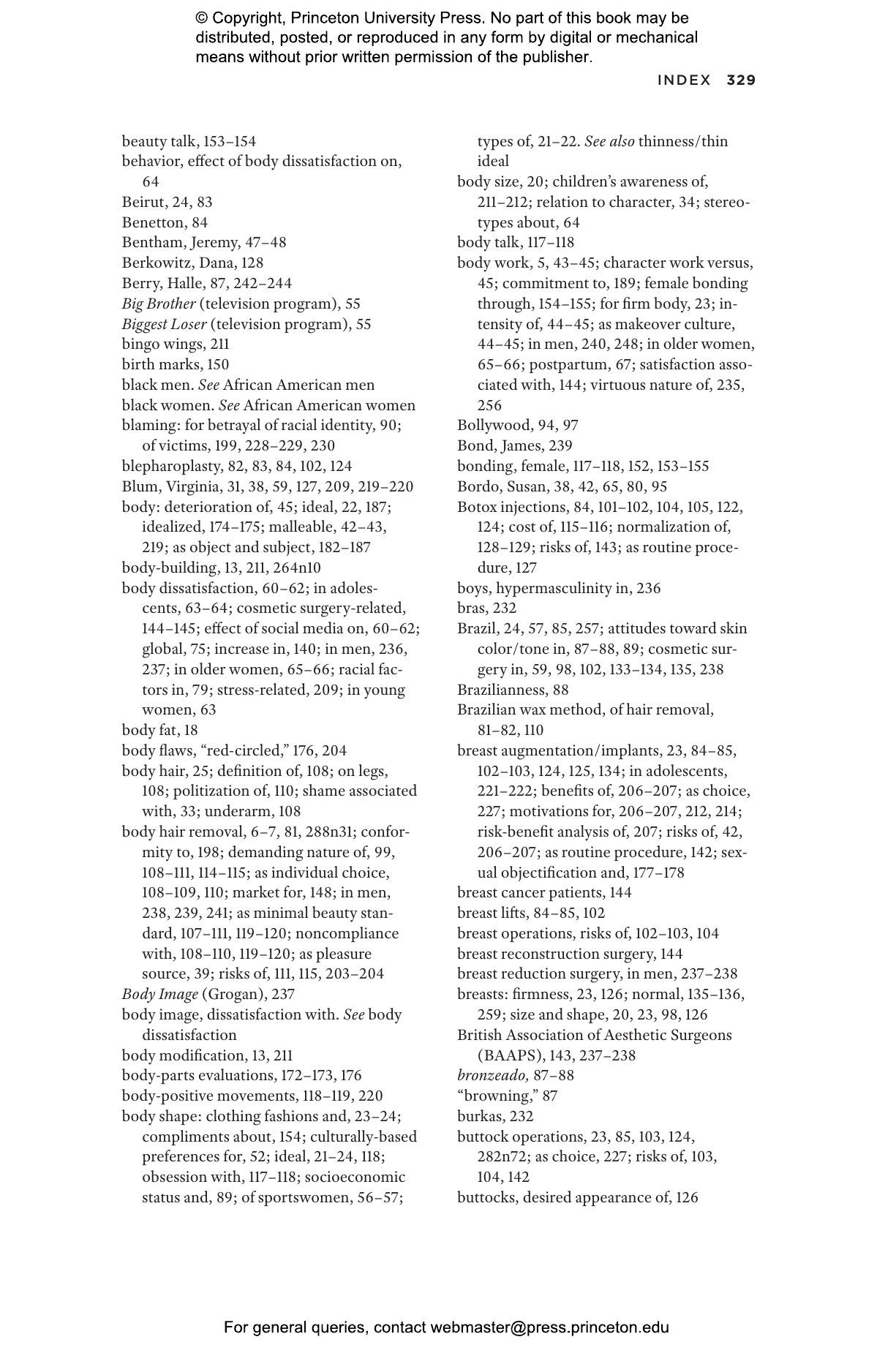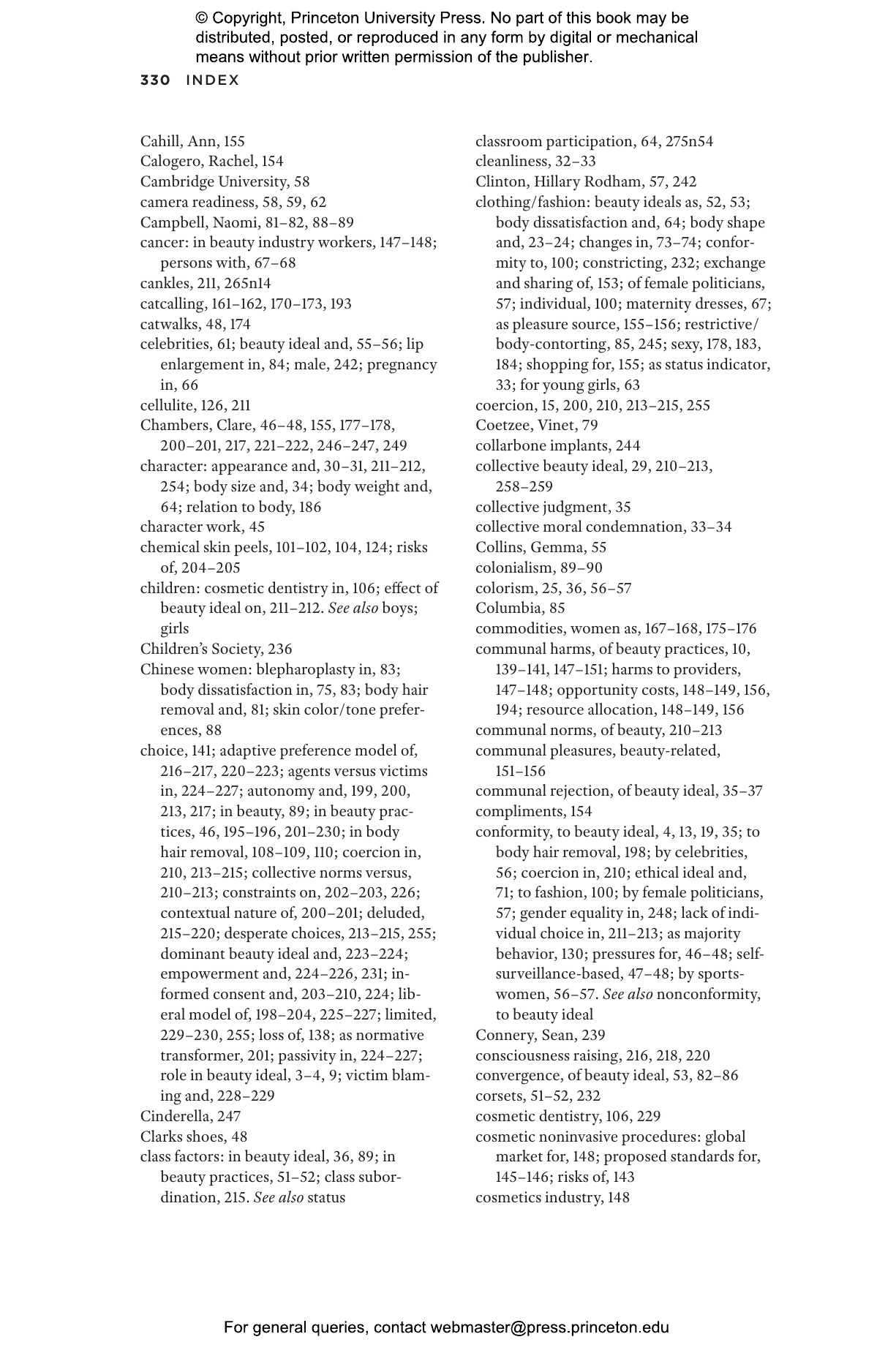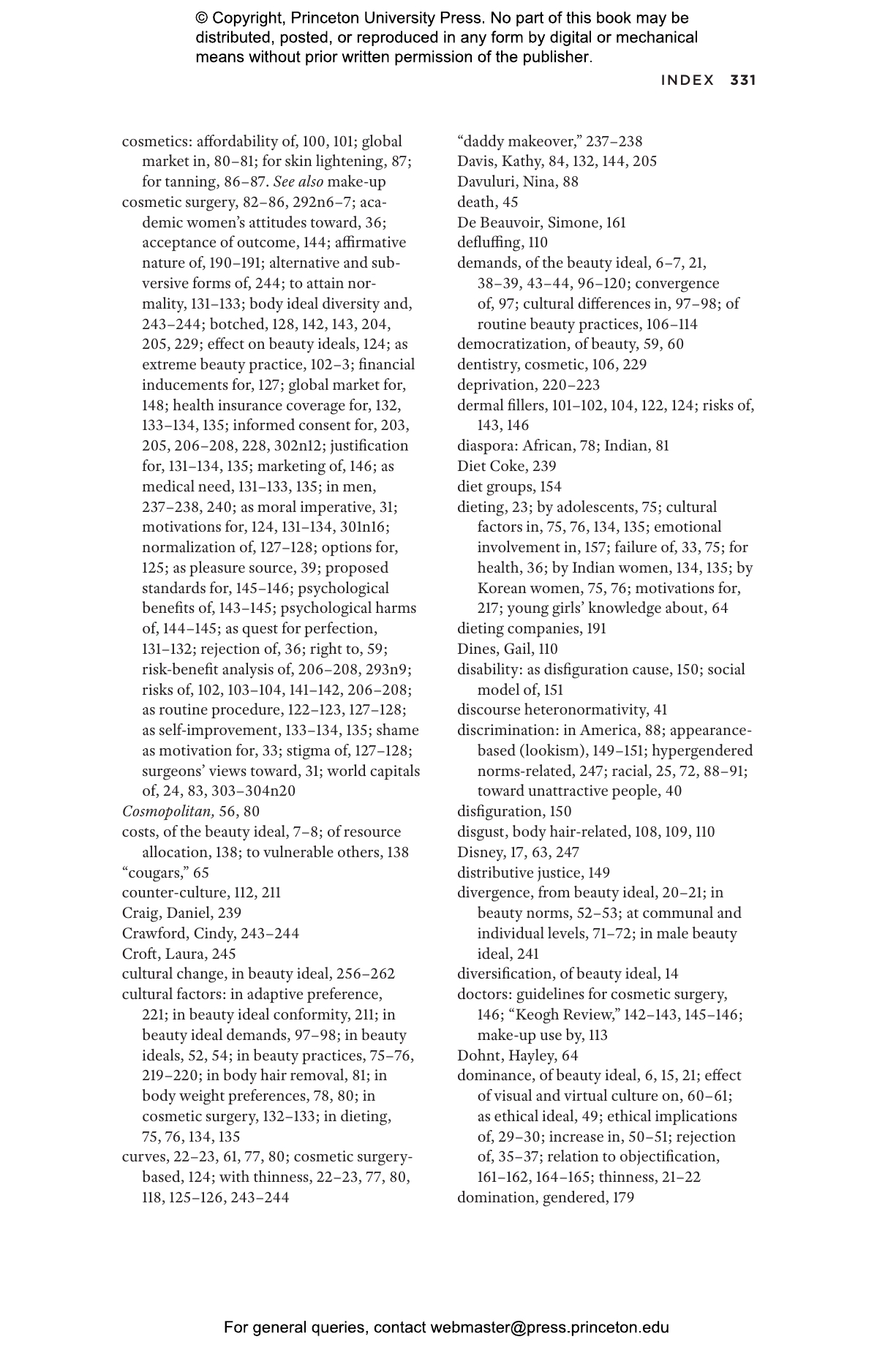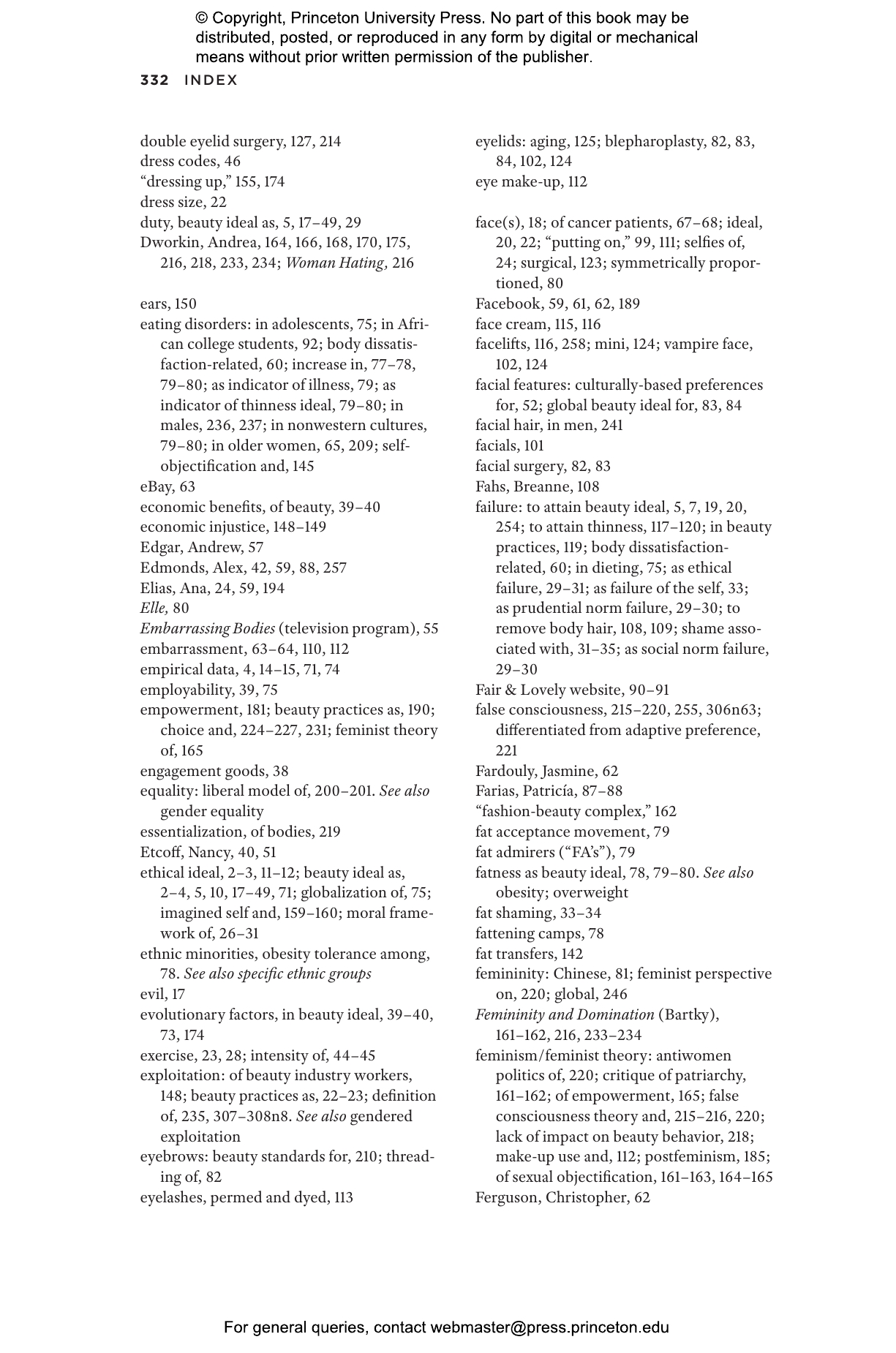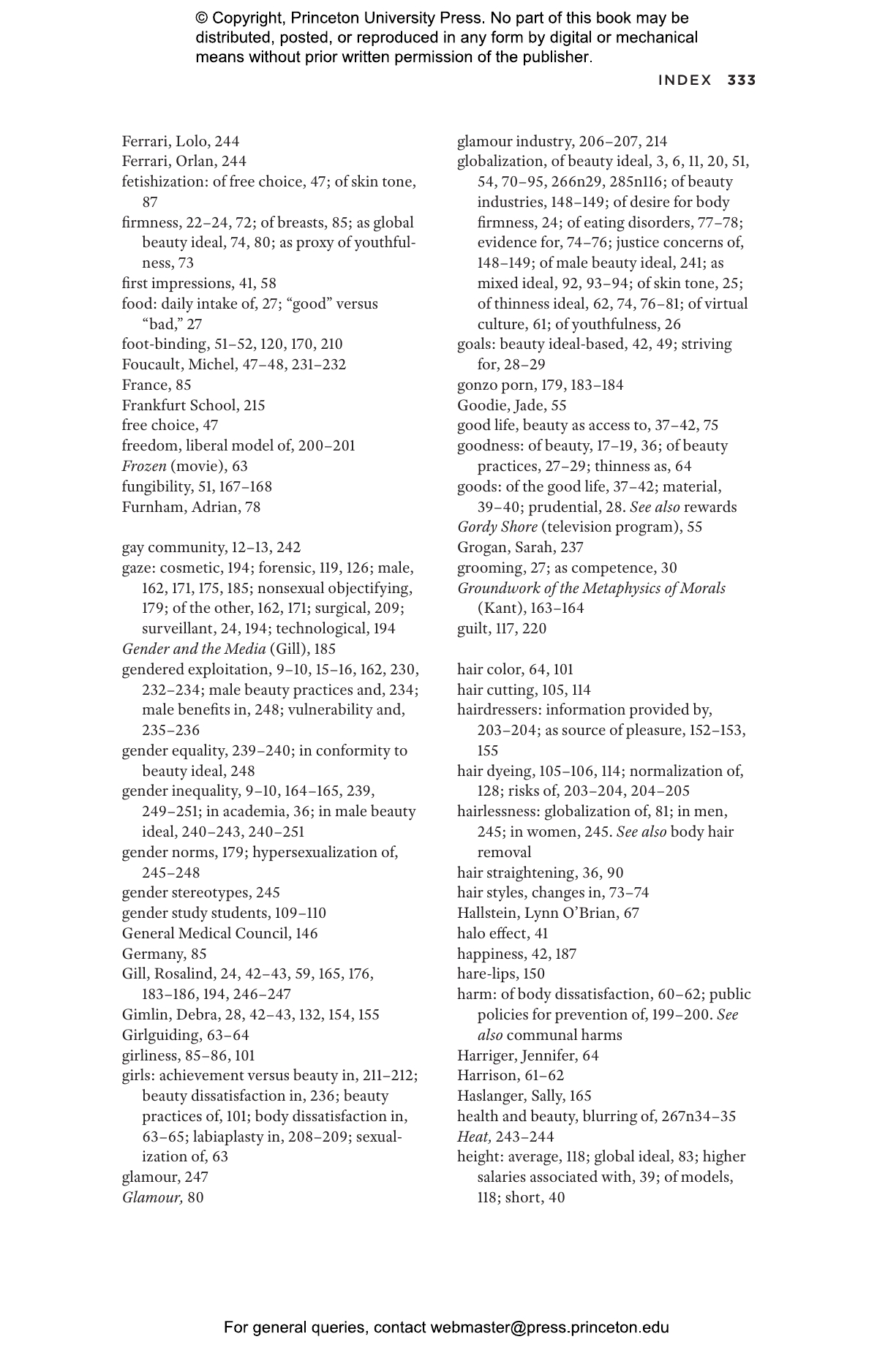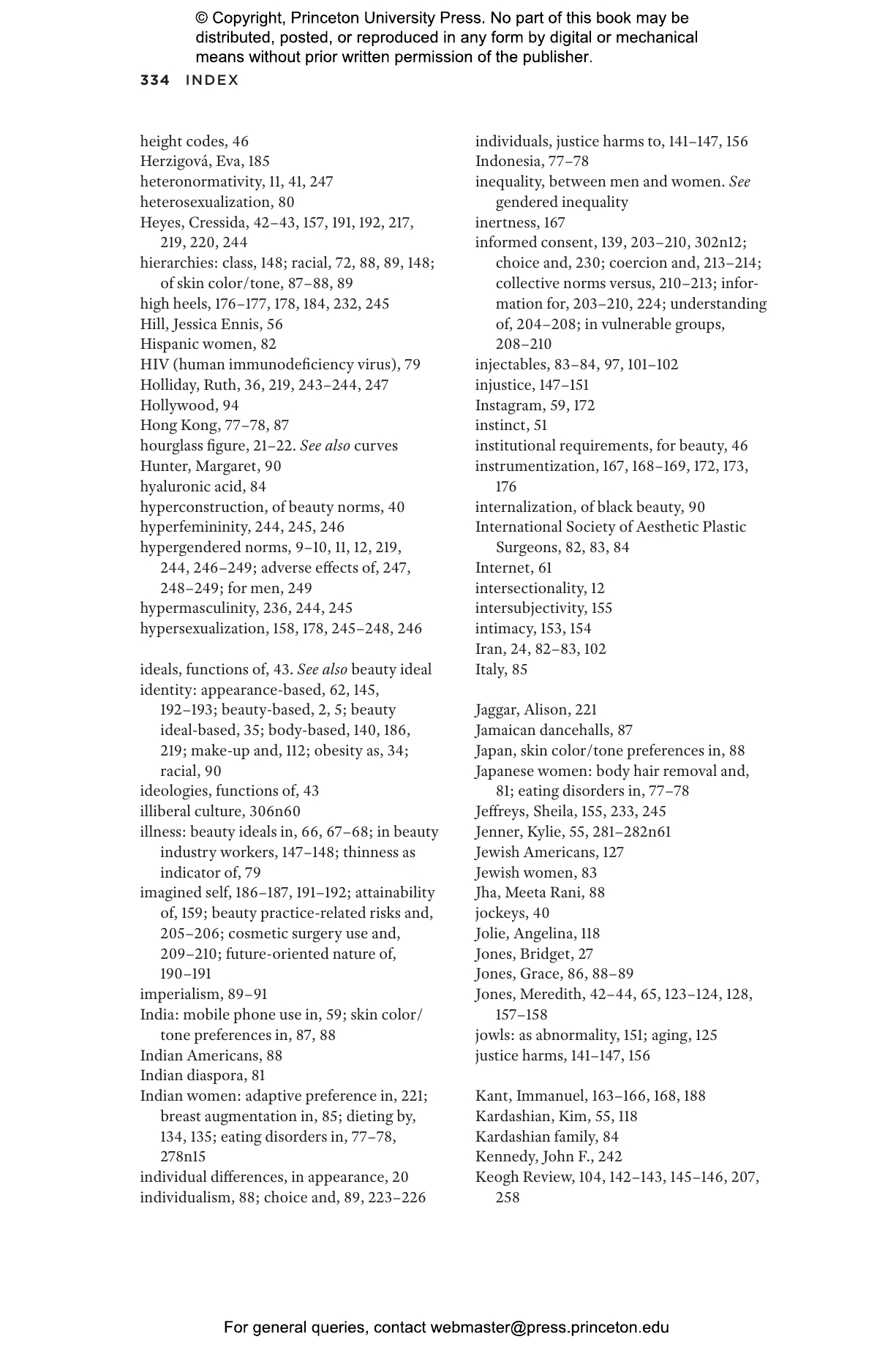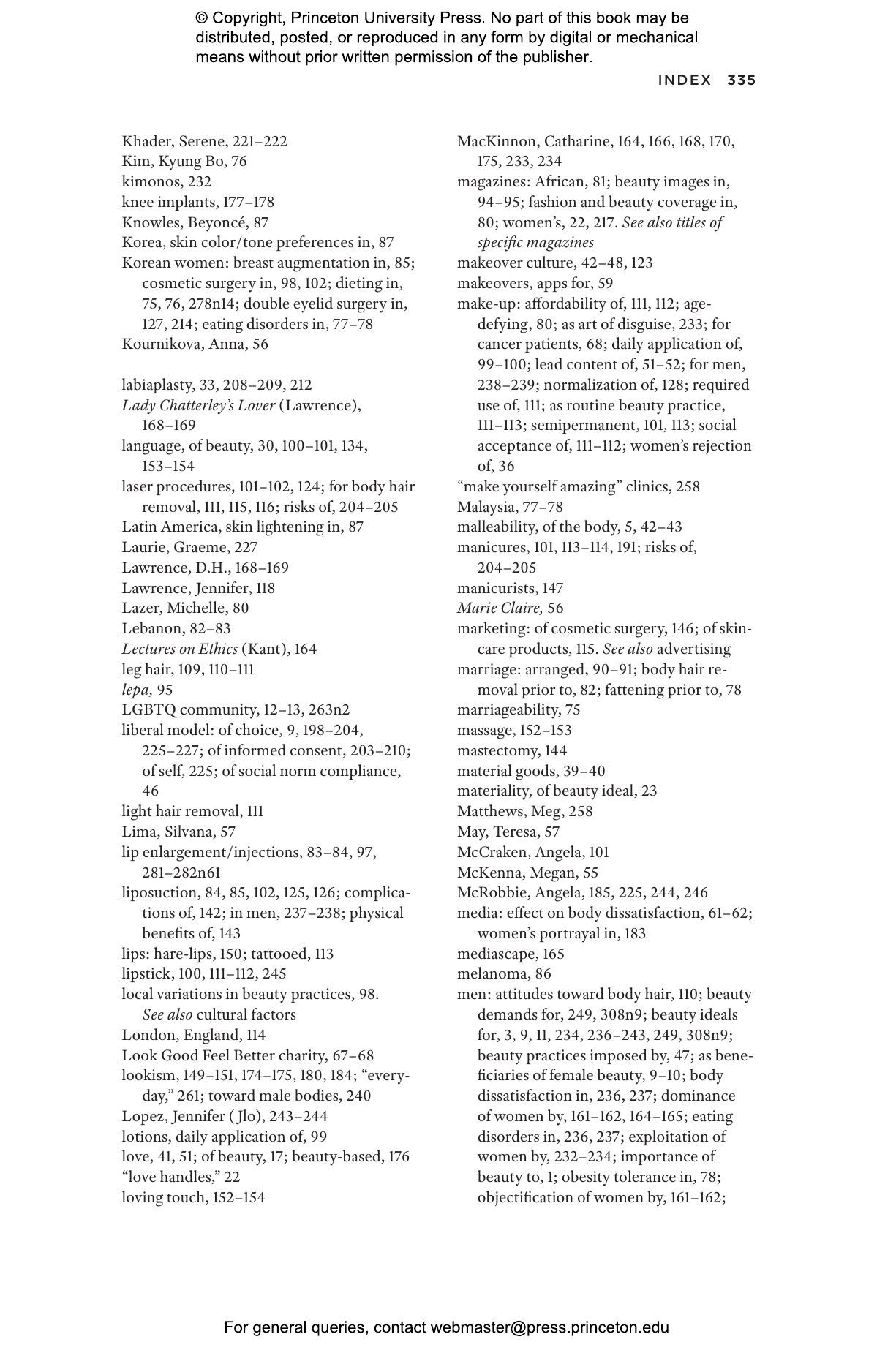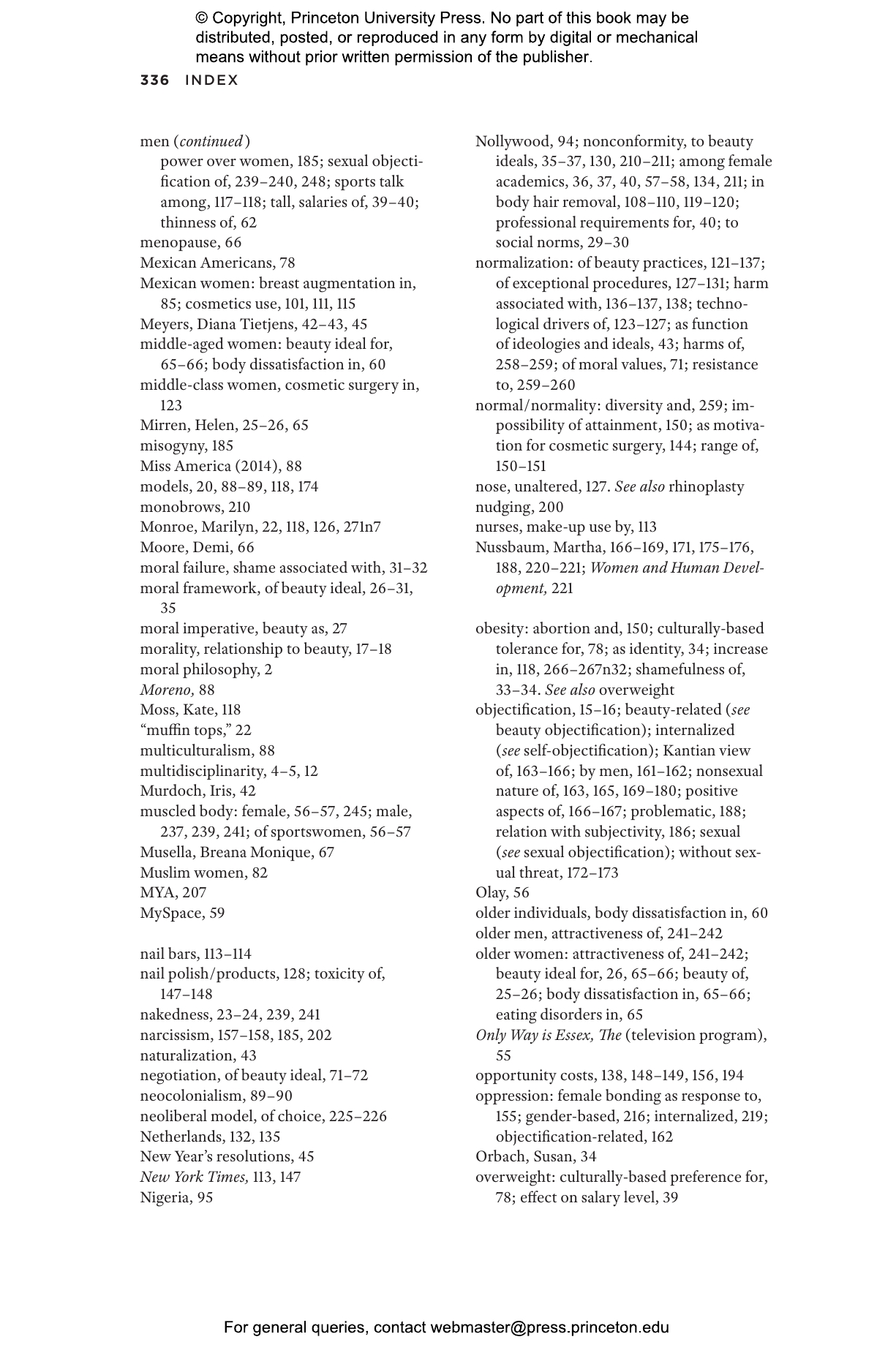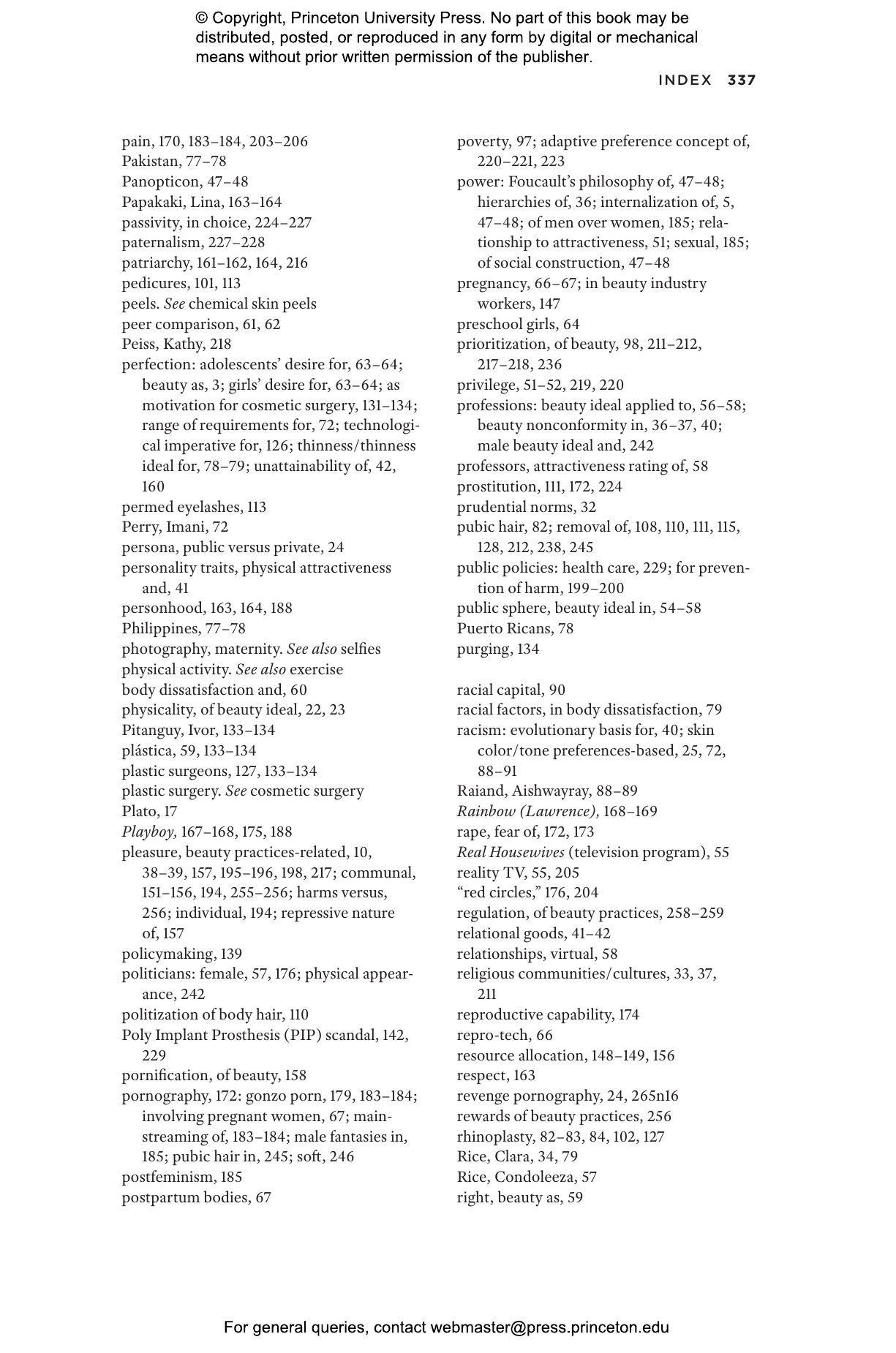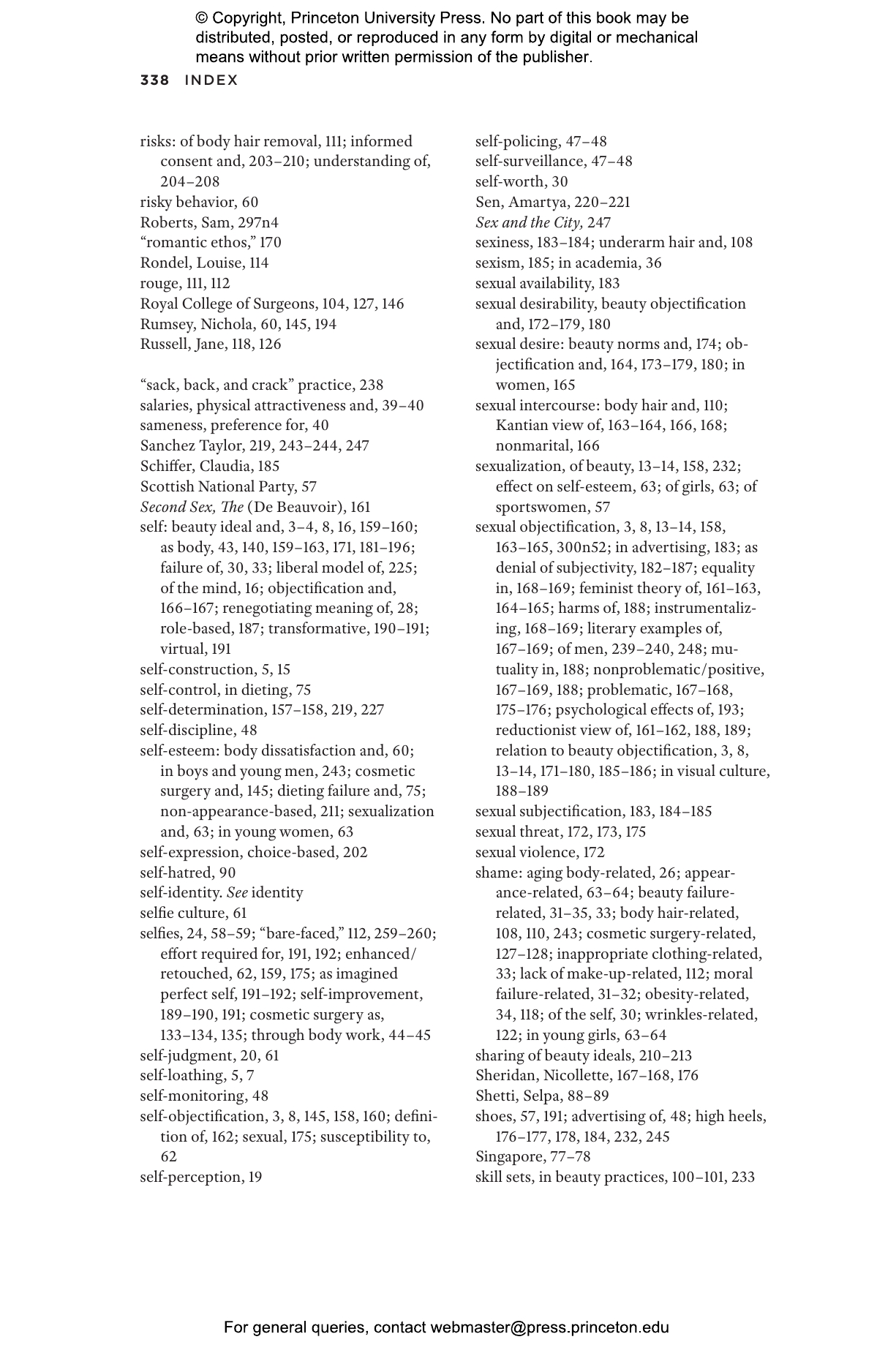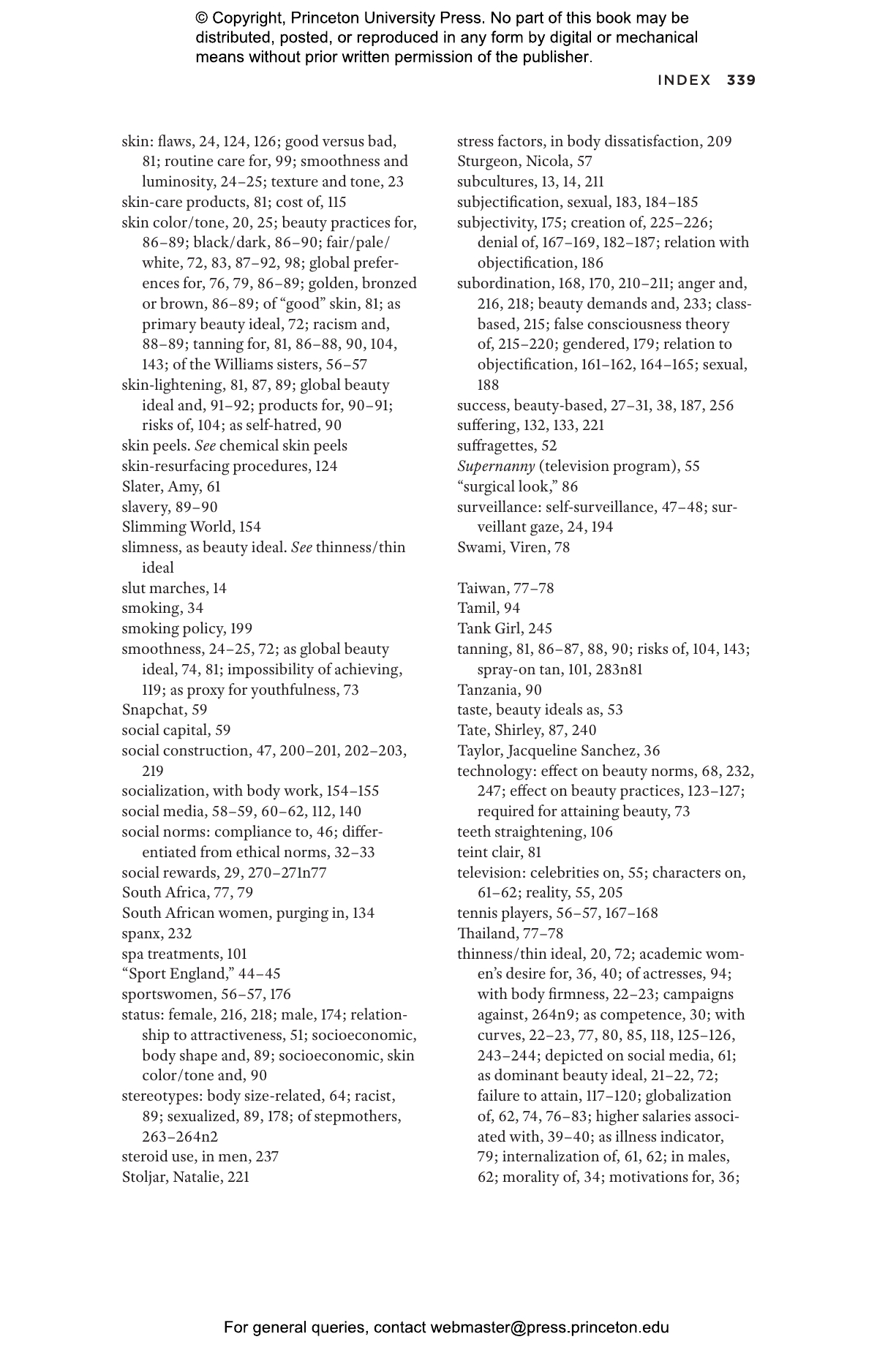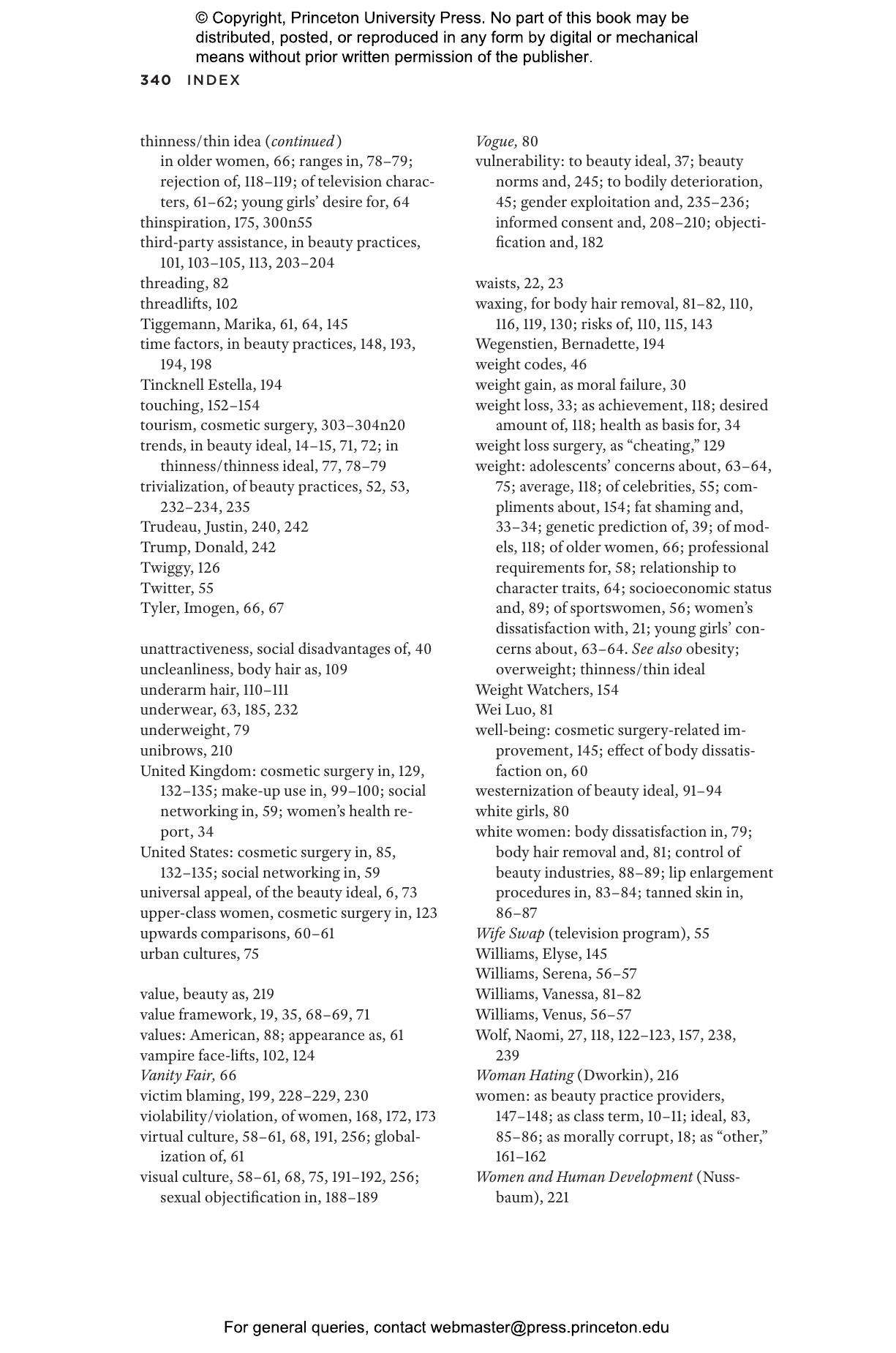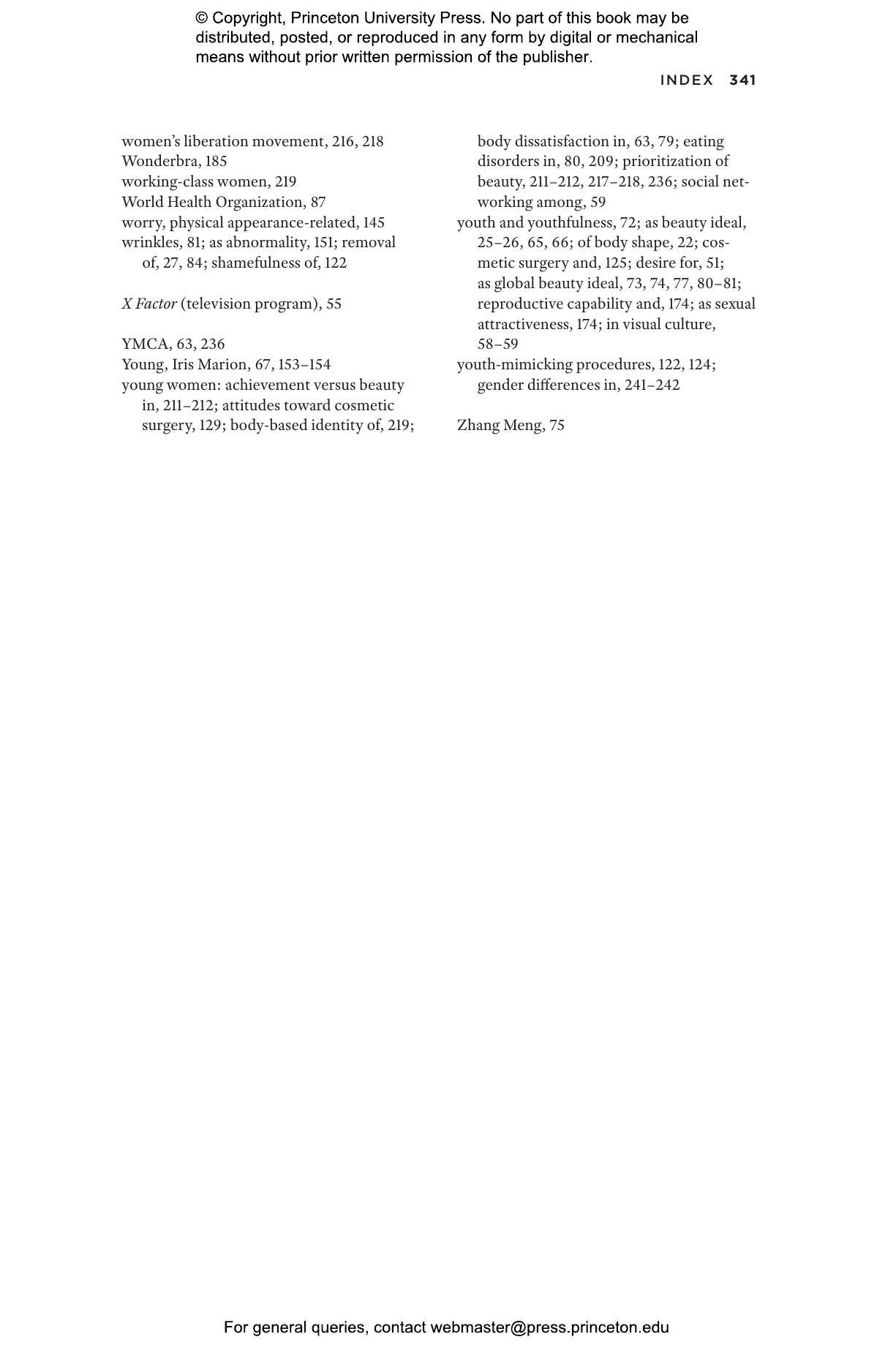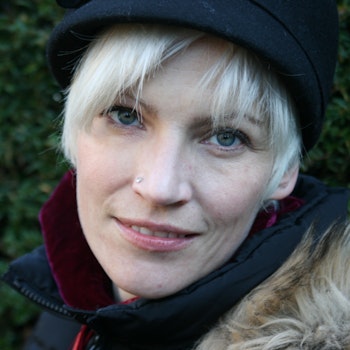The demand to be beautiful is increasingly important in today’s visual and virtual culture. Rightly or wrongly, being perfect has become an ethical ideal to live by, and according to which we judge ourselves good or bad, a success or a failure. Perfect Me explores the changing nature of the beauty ideal, showing how it is more dominant, more demanding, and more global than ever before.
Heather Widdows argues that our perception of the self is changing. More and more, we locate the self in the body—not just our actual, flawed bodies but our transforming and imagined ones. As this happens, we further embrace the beauty ideal. Nobody is firm enough, thin enough, smooth enough, or buff enoughânot without significant effort and cosmetic intervention. And as more demanding practices become the norm, more will be required of us, and the beauty ideal will be harder and harder to resist.
If you have ever felt the urge to âmake the best of yourselfâ or worried that you were âletting yourself go,â this book explains why. Perfect Me examines how the beauty ideal has come to define how we see ourselves and others and how we structure our daily practicesâand how it enthralls us with promises of the good life that are dubious at best. Perfect Me demonstrates that we must first recognize the ethical nature of the beauty ideal if we are ever to address its harms.
Awards and Recognition
- One of The Atlantic's Best Books of 2018
"In . . . Perfect Me, Heather Widdows, a philosophy professor at the University of Birmingham, England, convincingly argues that the pressures on women to appear thinner, younger and firmer are stronger than ever."âAmanda Hess, New York Times
"In 1990 . . . Naomi Wolf published The Beauty Myth, her examinationâand her indictmentâof the way attractiveness functions as both a metaphor for and a mandate over womenâs lives. The book now has a sequel, of sorts. . . . Perfect Me: Beauty as an Ethical Ideal . . . [is] a scholarly work that is urgently relevant to the current cultural moment."âMeagan Garber, The Atlantic
"Perfect Me, a buzzed-about new book by Heather Widdows, argues women face unprecedented pressure to appear thinner, younger and firmer."âAnne Kingston, Maclean's
"Heather Widdows, in Perfect Me, considers the far-ranging implications of attractiveness rendered in the imperative, giving beauty itself, in the process, the rigorously intellectual treatment it deserves. The book, an academic title with mass-market implications, considers beauty as a construction, racialized and gendered; beauty as a constriction, often punishing and occasionally cruel; and beauty as a goal that remains, for most, persistently out of reach. Perfect Me is a treatise that often reads, fittingly, as an indictmentâa book that recognizes all the ways people are taught, still, to judge books by their covers."âThe Atlantic
"A sharp and accessible read."âRegan Penaluna, Guenrica
"Widdows is at her best in her analysis of liberalismâs uncritical glorification of choice (and therefore responsibility), which fails to consider social contexts and pressures and so allows for victim blaming when women âchooseâ to comply with beauty standards."âM.A. Betz, Choice Reviews
"Widdows deserves high praise for her interdisciplinary work in this book and its combination with philosophical rigor."âSamantha Brennan, Notre Dame Philosophical Reviews
"Perfect Me is well-worth reading for anyone who is concerned about the importance of beauty in modern life and the imperative to develop critical perspectives for thinking about it. It sets out the questions that we need to be thinking about and does so in a way that makes it clear what is at stake in our search for evermore-perfect bodies."âKathy Davis, European Journal of Women's Studies
"Heather Widdows[âs Perfect Me] gave me language to understand my own thought processes around my body, and that framework freed me from years of accidentally accumulated bullshit thinking. Iâm grateful I stumbled onto it. I think of it frequently."âBri Lee, Sydney Morning Herald
âIn this sensitive, nuanced, and vitally important book, Heather Widdows uses an eye-opening combination of empirical and theoretical sources to show how the beauty ideal is increasingly irresistible and without exception: virtually every woman of every age, class, and nationality is expected to make herself beautiful. Perfect Me is fascinating, challenging, and essential reading.ââClare Chambers, author of Against Marriage: An Egalitarian Defence of the Marriage-Free State
"This groundbreaking book is an extended reflection on what Widdows argues to be the increasingly demanding norms of feminine beauty. Perfect Me moves forward from both second wave feminist critiques of the âfashion-beauty complexâ and third wave feminist insistence on individual empowerment and choice. Widdows acknowledges the pleasures of the beauty ideal but argues that it produces significant communal harms. She proposes reframing these harms as public health concerns, a shift that opens the way for new and more systemic ethical analyses."âAlison M. Jaggar, University of Colorado at Boulder
"Innovative and original."âAnne Phillips, author of The Politics of the Human
"Widdows brings much-needed subtly to current conversations about the moral and social role of physical appearance in our daily lives."âA. W. Eaton, editor of Talk to Her
âPerfect Me exposes beauty for what it has become in the twenty-first century, an ethical ideal that endlessly raises and narrows the standards of what counts as normal. Widdows manages to be sensitive to the pleasures and rewards of beauty while avoiding the individualist traps of uncritically celebrating womenâs choices and ignoring the ways cultural practices contribute to social injustice. This is a timely and much-needed book that will enrich our moral and political conversations about beauty.ââSerene J. Khader, author of Adaptive Preferences and Womenâs Empowerment
